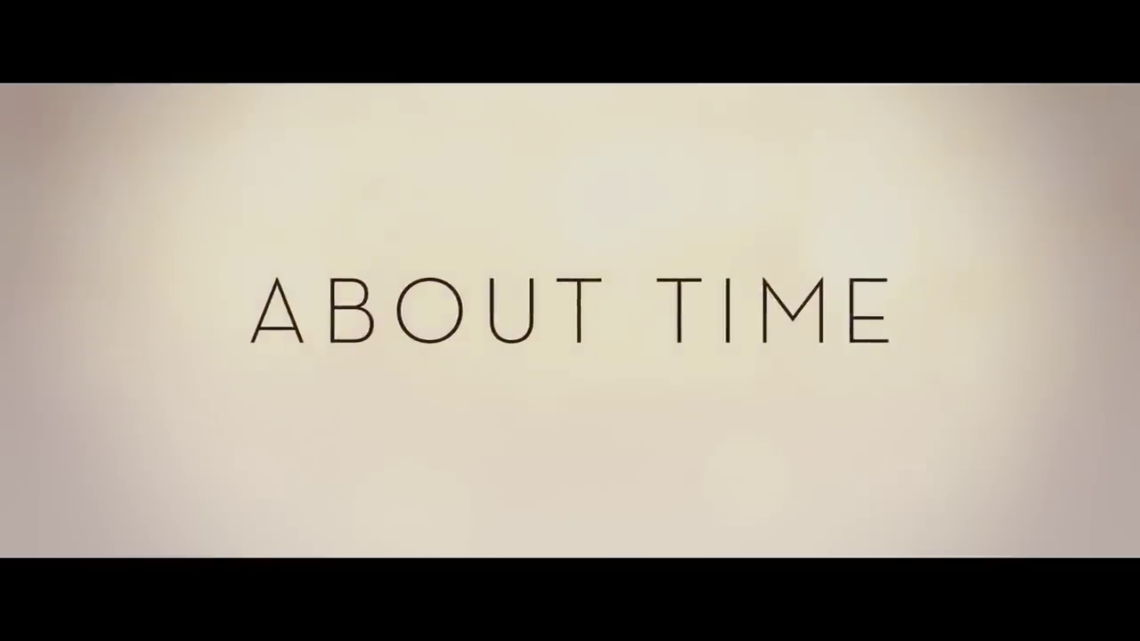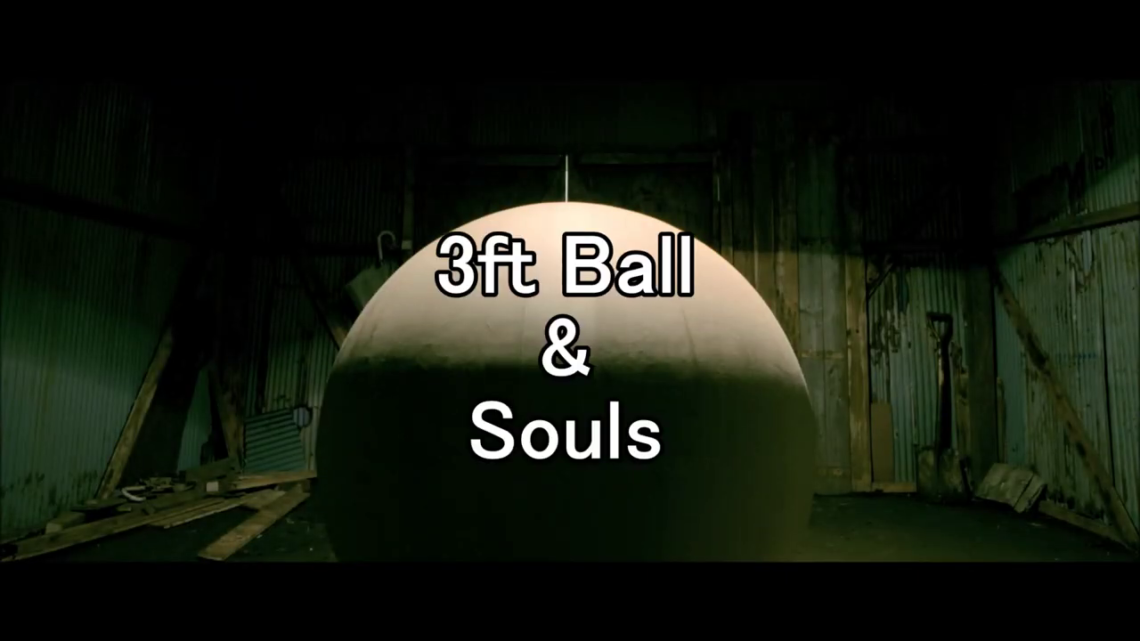-
#645 – About Time (2013)
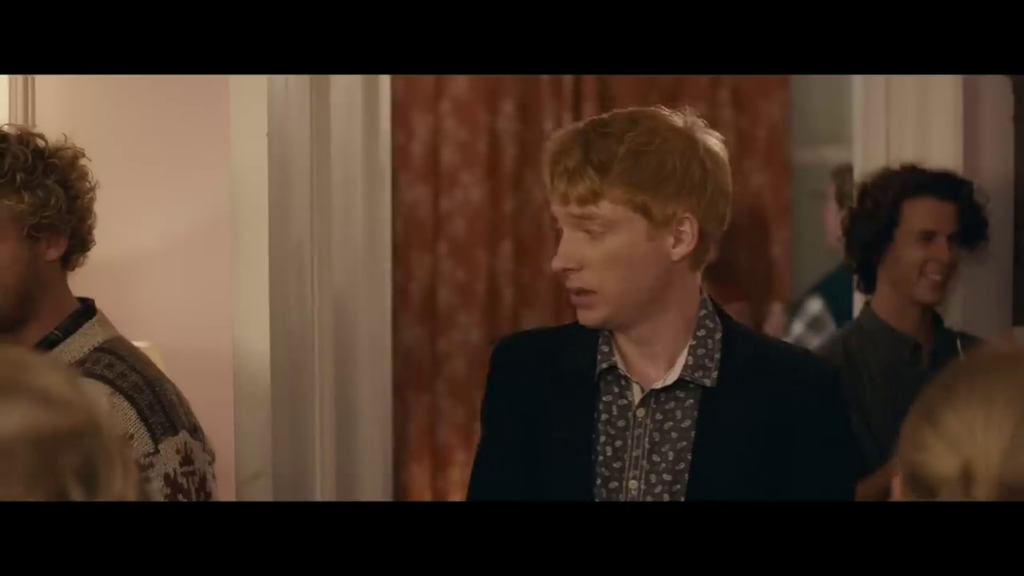
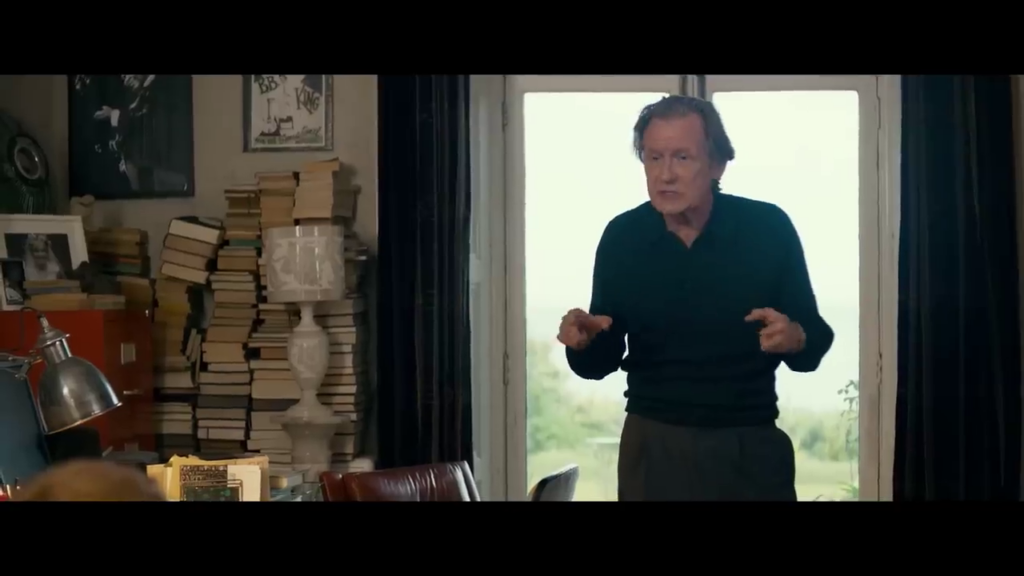
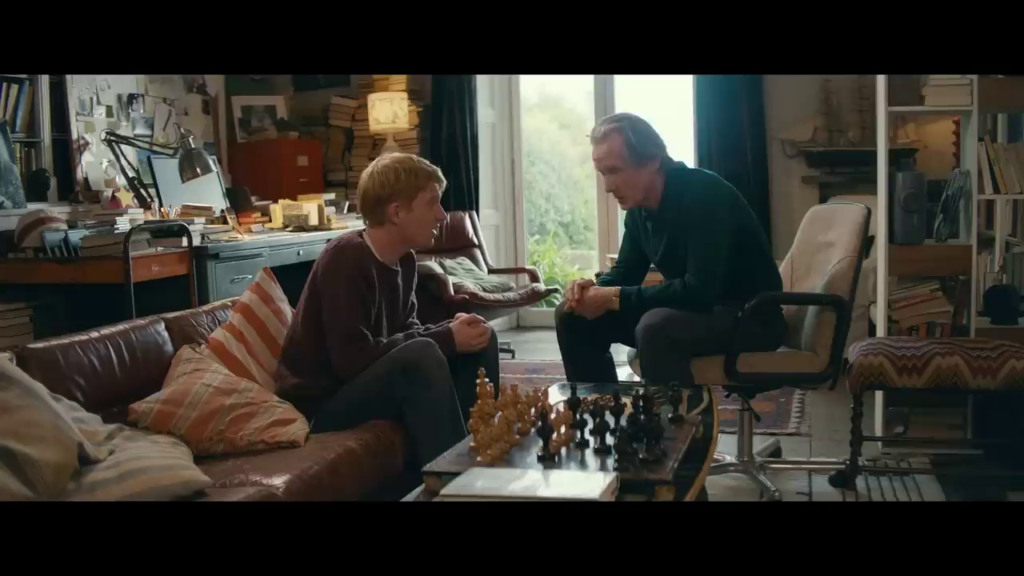

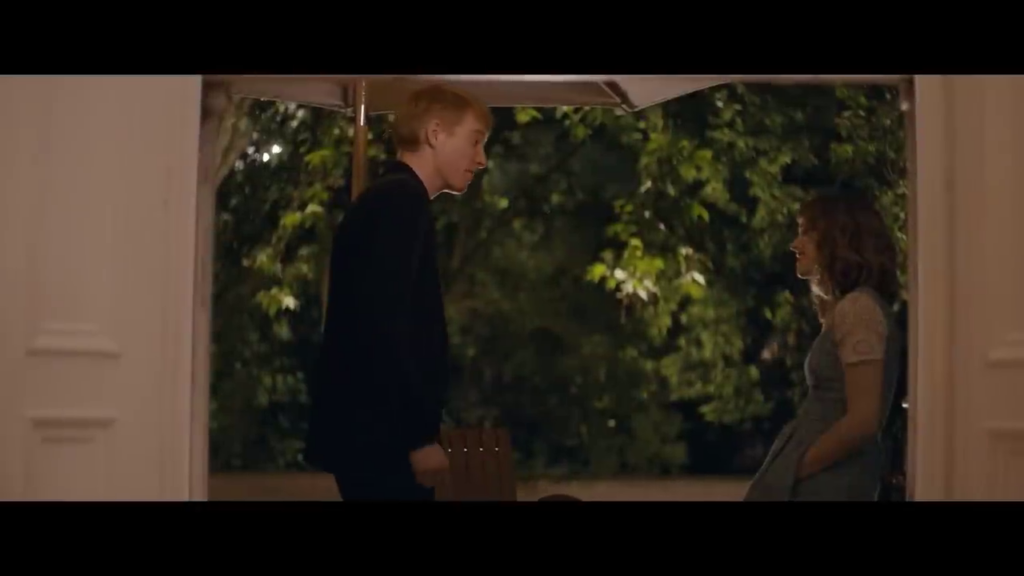
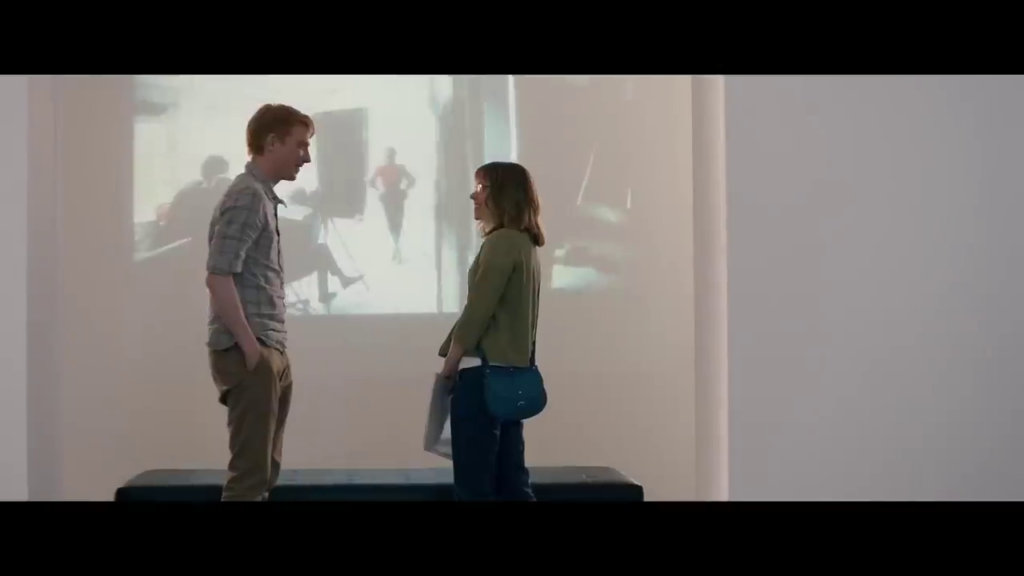
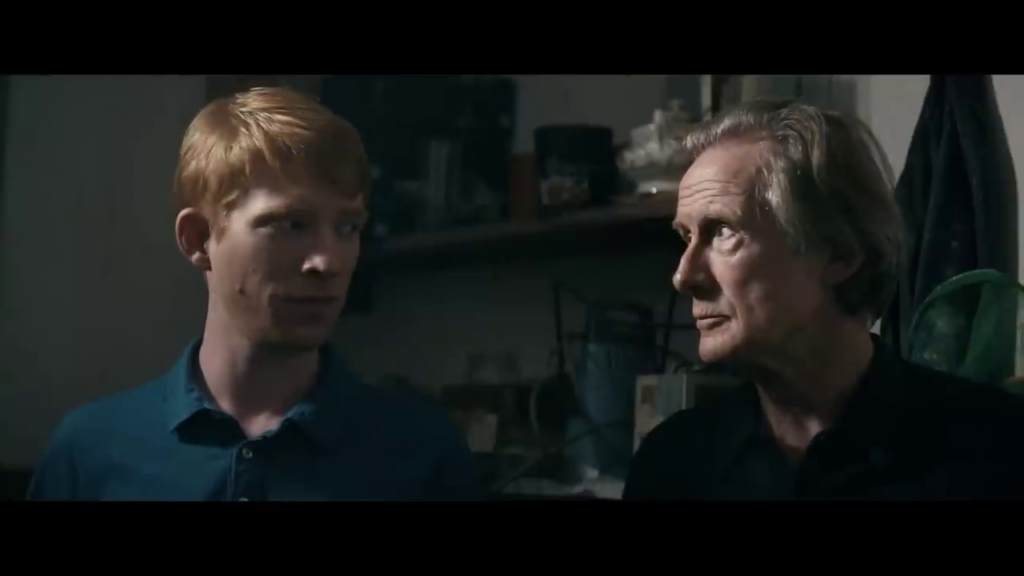
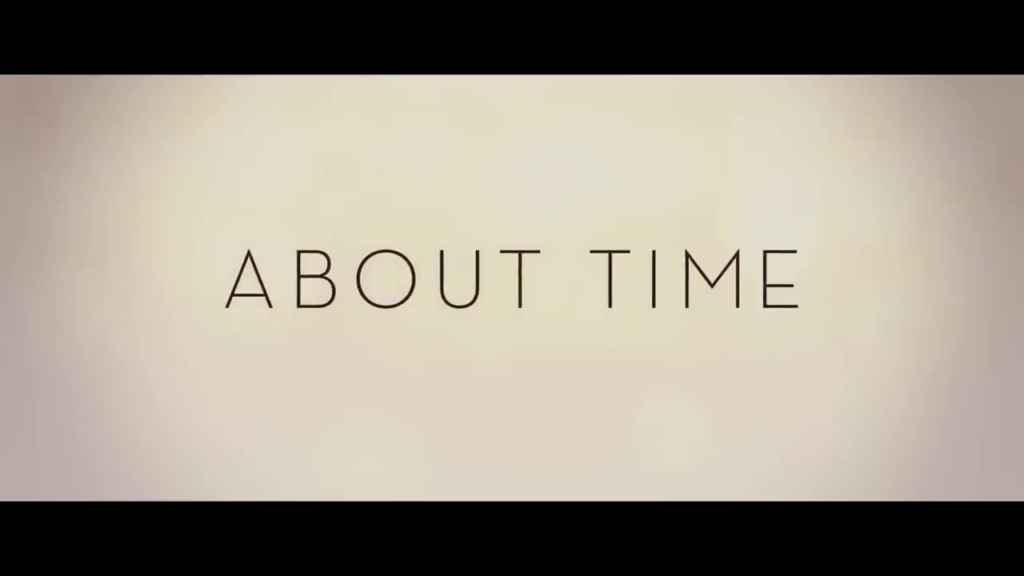
About Time (2013)
Film review #645
Director: Richard Curtis
SYNOPSIS: Tim learns from his Father that the men in his family have the ability to travel back in time. He uses this power to help improve his life, as his Father suggests, and upon meeting Mary, he does everything he can to make their relationship work…
THOUGHTS/ANALYSIS: About Time is a 2013 sci-fi romantic comedy film. After a lacklustre New Year’s Eve party, Tim Lake learns from his Father that the men in his family (himself included) have the ability to travel back in time. He decides to use this power to improve his life by finding love. When he encounters Mary by chance, he has to use his powers to make sure their relationship is perfect. The film focuses on using these powers within the range of the romance genre, and sidesteps a lot of the other issues that this power could address: Tim is clearly established from a well-off family that get along well, so has no real need to use his powers for money or the other typical things people would try to get if they had these powers. It pigeon-holes the film in only dealing with certain things, but it’s a romance film, so it should have a specific focus I suppose. When he meets Mary, he has to use his powers to make sure their relationship goes right, but when he inadvertently changes the past so they never meet, he has to go back in time to try and meet her by “chance,” which means he learns where she is going to be at certain times. now, I suppose you could argue that this is “okay” since they already did meet naturally and hit it off before Tim changed the past, so arranging himself to meet her by chance is just him repeating what he had done, but there’s still this feeling of him being manipulative about the whole situation that just irks me, and remained with me throughout the film. The film never once raises this dilemma that he changed the past so he should maybe just deal with it, and just carries on as if it’s not really an issue. The fact also that Mary never finds out about his powers really makes the relationship very one-sided.
The film is, despite the film’s title, about love, and hinges on the developing relationship between the two main characters. Both Tim and Mary have some compatibility, and there’s certainly some charm in their interactions. The film offers us a fairly well-rounded picture of the couple, from their first meeting, to marriage and children. The film doesn’t really offer a climax of any sort, it just levels out as Tim learns to make the most of life one day at a time. All of the issues and problems faced throughout the film don’t really feed into this climax, and are often easily fixed by the whole time travel business so they never happened, and no one really develops via their mistakes. As mentioned, Tim and Mary have a certain amount of chemistry, and they deviate enough from the typical romance leads, but their quirky personalities that ramble on in that quirky fashion is not going to endear them to everyone, and even if you appreciate the charm their base awkwardness brings, it does get old after two hours. We don’t really get a sense of any of the other characters either; we get a narration introducing them at the beginning, and that serves to sum up their whole character throughout the film, so again there’s very little development or anything new than what is immediately established.
The film takes a bit of a shift towards the end as Tim’s Dad passes away, and Tim begins to go back to the past to speak with him before he no longer can. It offers a touching finale to the film, but also it just doesn’t really fit in with the romance between Tim and Mary, as the latter is pretty much side-lined. I get that Tim’s dad first introduced him to the power, and is a secret between them, so it kind of closes the circle of the films story, but it would have been nice for it to at least play more of a part throughout the film so everything is weaved together a bit better. It is at this point as well that the film just throws its own rules about time travel out of the window, having Tim go back visiting his father before he died and such. The film hand-waives the issue of a butterfly effect of altering the past away in the beginning, and as mentioned Tim never really has to deal with the consequences of his actions. The romance film is director Richard Curtis’s bread and butter, but adding in the time travel element creates a lot of issues, as I always say: if you’re going top have time travel in your film, you need to know how it works, or it will quickly unravel the whole film with plot-holes and the like.
About Time has enough charm and chemistry to carry out its duties as a romance film, but suffers from side-stepping the problems that time travel inevitably creates, and ignores addressing consequences in fear of disrupting its attempt at creating the perfect romance through the redoing of very specific moments. There’s a bit too much of holding the film together on vibes alone rather than exploring its premise with any amount of depth. It’s Richard Curtis doing what he does best, but lack of any real plot or development of the characters leaves little substance underneath. It hits the right notes when it needs to, but it’s quite muddled when it needs to how it got there. maybe it’s charm can carry you through the film, or, like me, maybe it just flounders a few times too many.
-
#601 – The Penitent Man (2010)
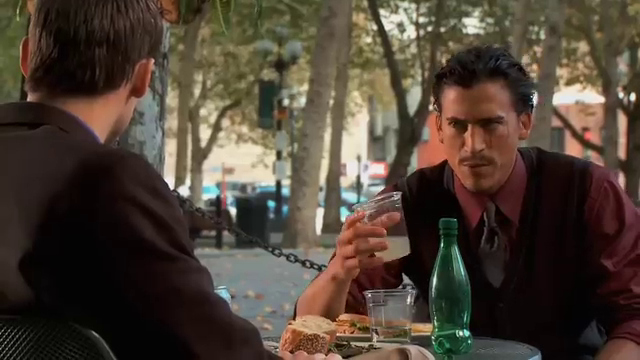
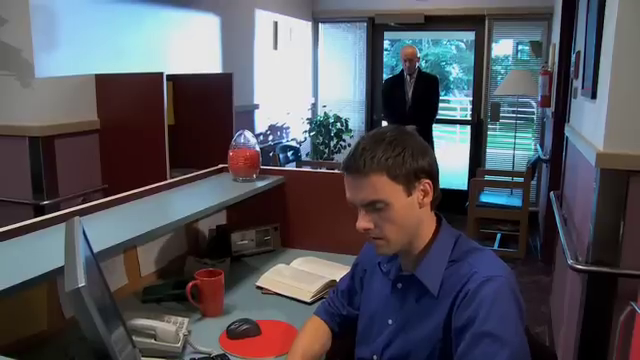
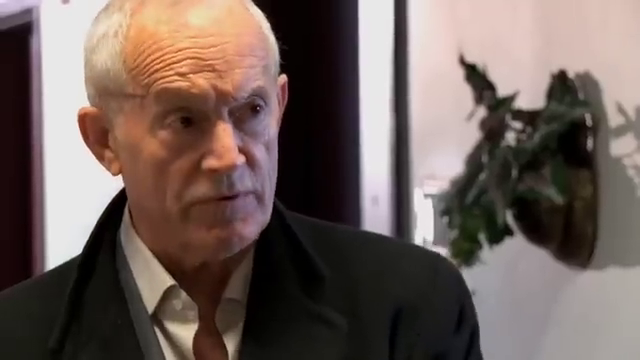
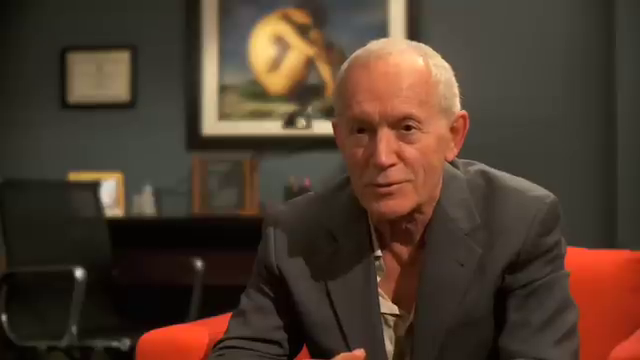

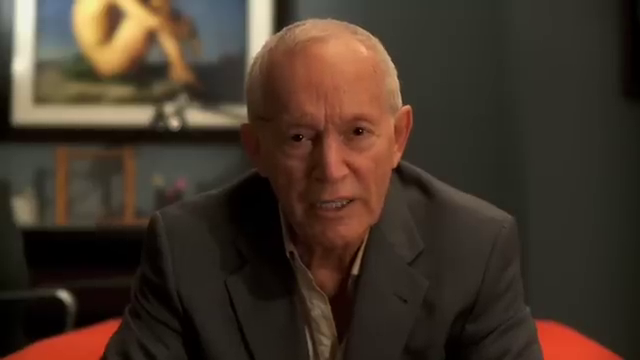
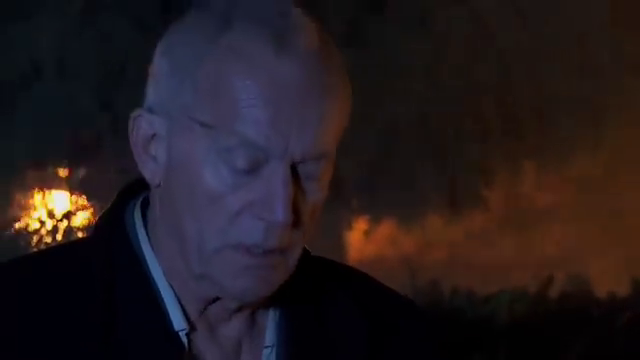
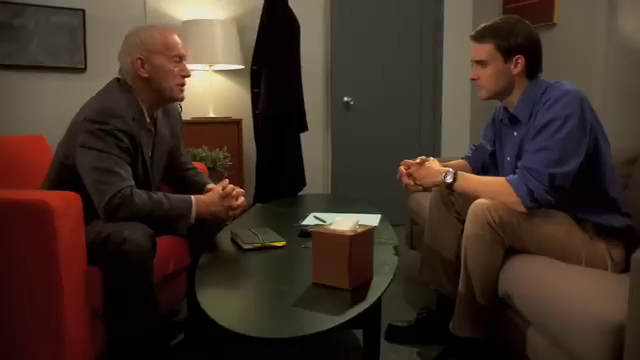

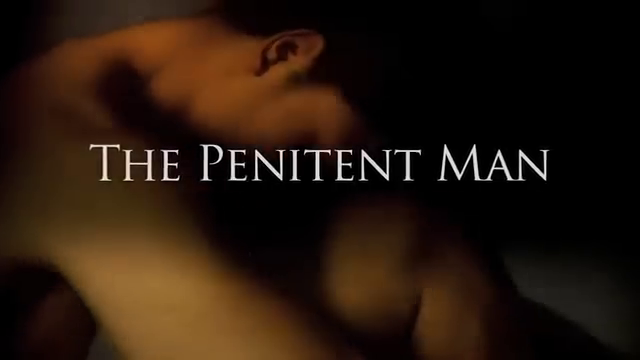
The Penitent Man (2010)
Film review #601
Director: Nicholas Gyeney
SYNOPSIS: A psychologist with troubles with his finances and marriage is visited by a long term patient who makes a startling claim – he is from the future, and he has travelled back to prevent the discovery he made from ever being used, as it brought about the destruction of society as we know it…
THOUGHTS/ANALYSIS: The Penitent Man is a 2011 film. Psychologist Dr. Jason Pyatt is visited by a patient, Mr. Darnell, who he has been sporadically over the past year. He confides in the doctor a secret: that he is from the future, where an invention he made to look through time has caused the collapse of society, and he has travelled back to prevent his discovery from being made. The film is essentially a drama film, with the two main characters sitting and talking, followed by two other characters sitting talking…essentially, there is a lot of dialogue in this film. You may be constantly waiting for something to happen, but nothing ever does. If the dialogue was captivating or explored ideas or concepts with some depth, it would be interesting, but it barely scrapes the surface of its ideas; instead just leaving things as generalities. The fact that nothing is really shown could generate an interesting sense of ambiguity about whether the man is telling the truth, but in the opening scene we see him in the future and time travel, so it just eliminates that avenue for the film to build on.
The whole film feels very amateur-ish, making it feel like someone saw The Room and took it as a “how-to” for filmmaking. The aforementioned scenes of flat dialogue don’t really develop the characters or story, and there’s a severe lack of purpose or direction. The film is also extremely heavy-handed with it’s imagery, and is obsessed with close-ups. For example, the beginning is filled with close-ups of wedding rings on the characters fingers and other paraphernalia to establish them, but it just doesn’t seem really necessary. Another issue is that the plot is entirely predictable, and unfolds exactly as you think it will: you’ll easily guess who Mr. Darnell really is, and who his friend was who tried to stop him. Again, there’s a heavy-handedness and inexperience that destroys any sense of tension or subtlety.
Lance Henriksen as Mr Darnell is the only real good actor in this film, but even then, he feels misdirected, and working with a poor script. his scenes with Dr Pyatt (Lathrop Walker) feel so uneven because of the chasm of talent between them. Scenes between other characters are completely devoid of interest, and no one seems to know what to do with the camera during these long scenes, and it sometimes just focuses on a character who is being spoken to, which is very odd. It’s easy to sum up this film as a very amateur and misguided attempt at being a smart film: the acting is dire, the camerawork lacks direction, the plot is predictable, the imagery is heavy-handed, and again, it really feels like someone took The Room as a guide for how to make films. There’s nothing really redeemable about the film, or anything interesting to take away from it, as it’s dull characters and completely predictable plot just leave you waiting for the film to end.
-
#596 – 3ft Ball & Souls (2018)
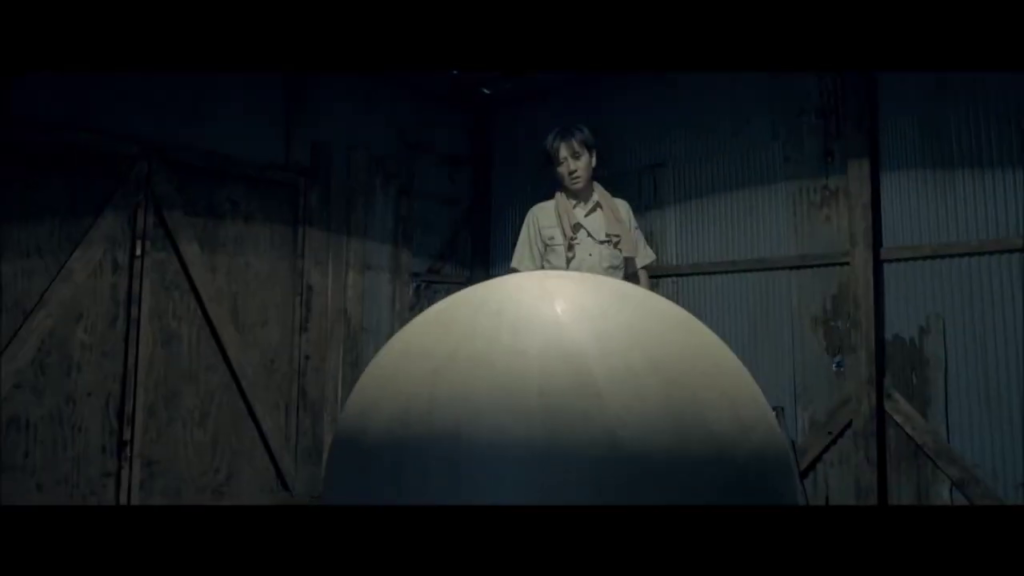
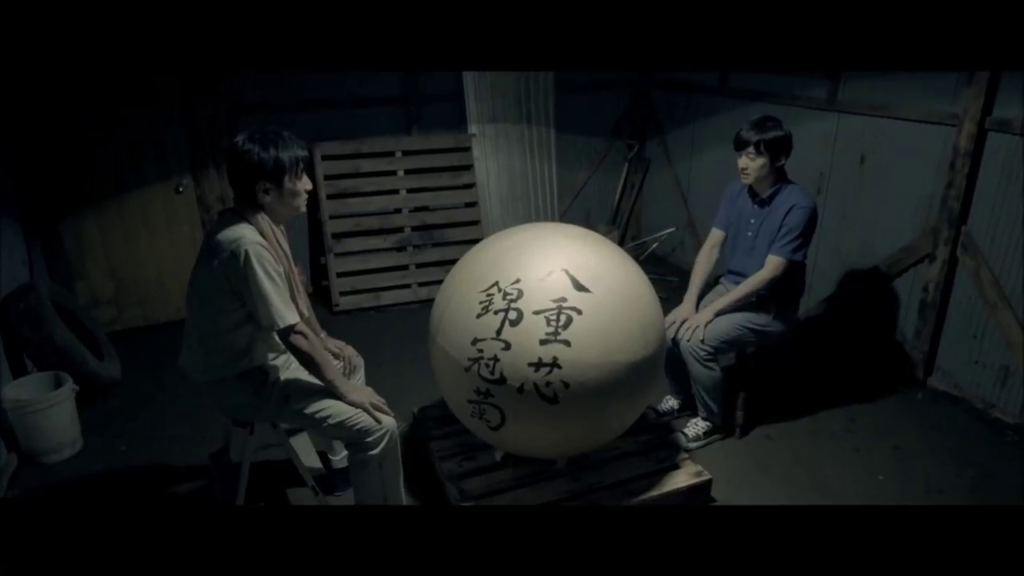
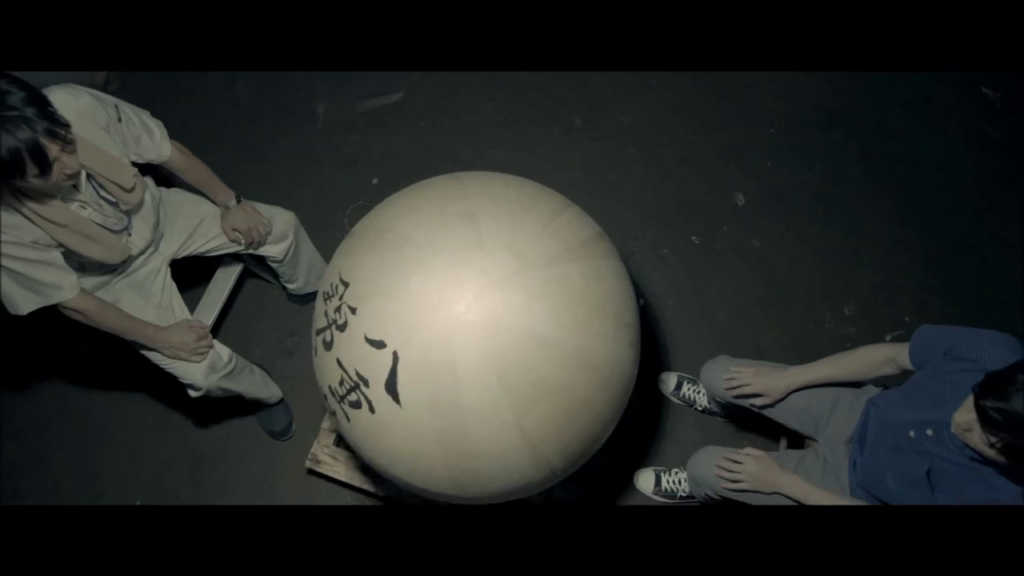
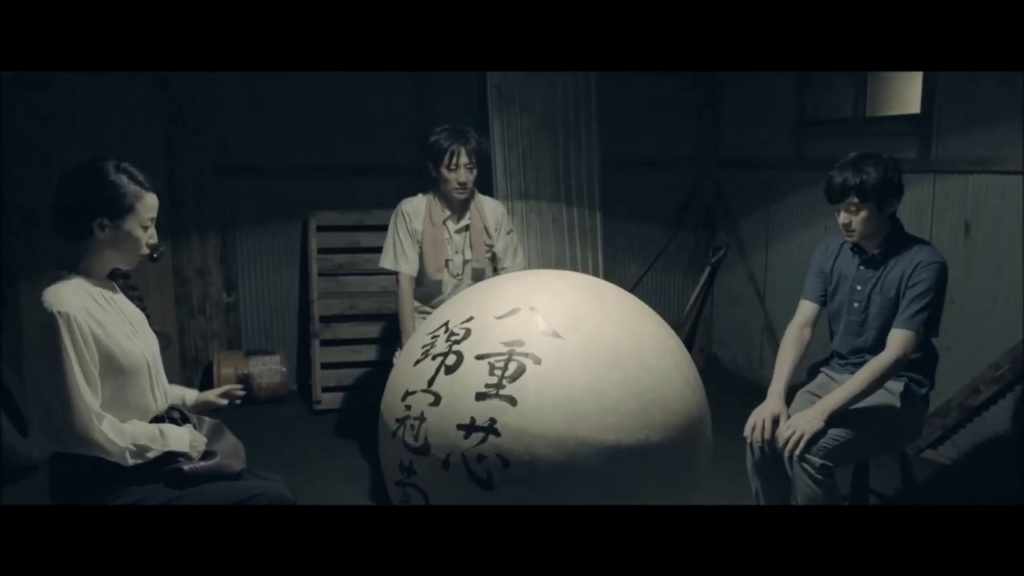
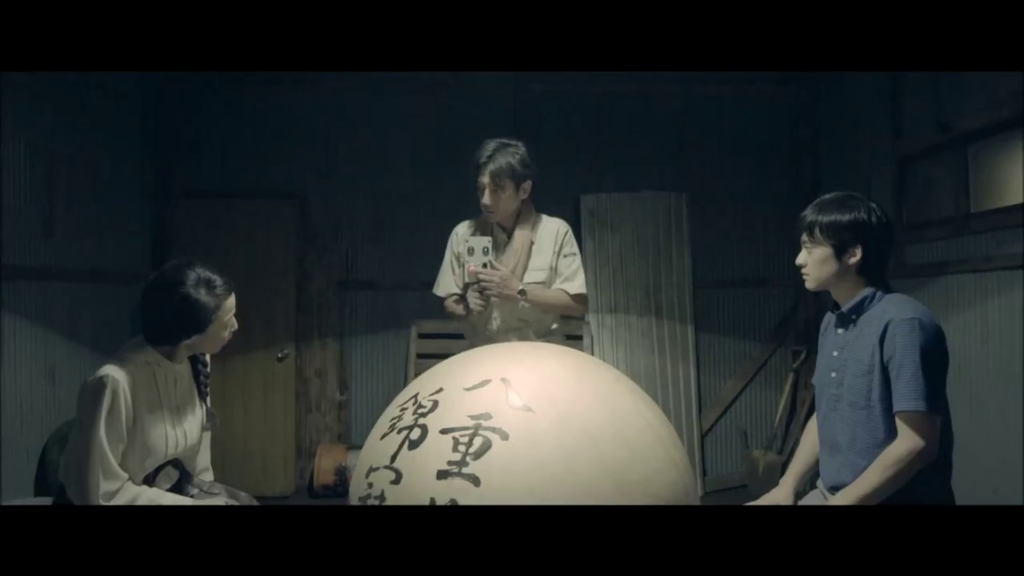
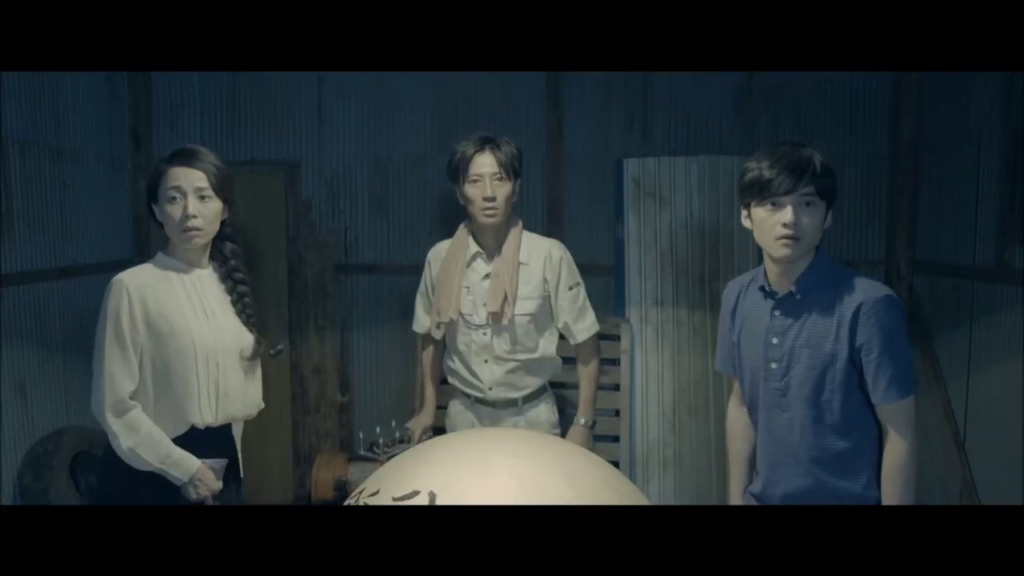
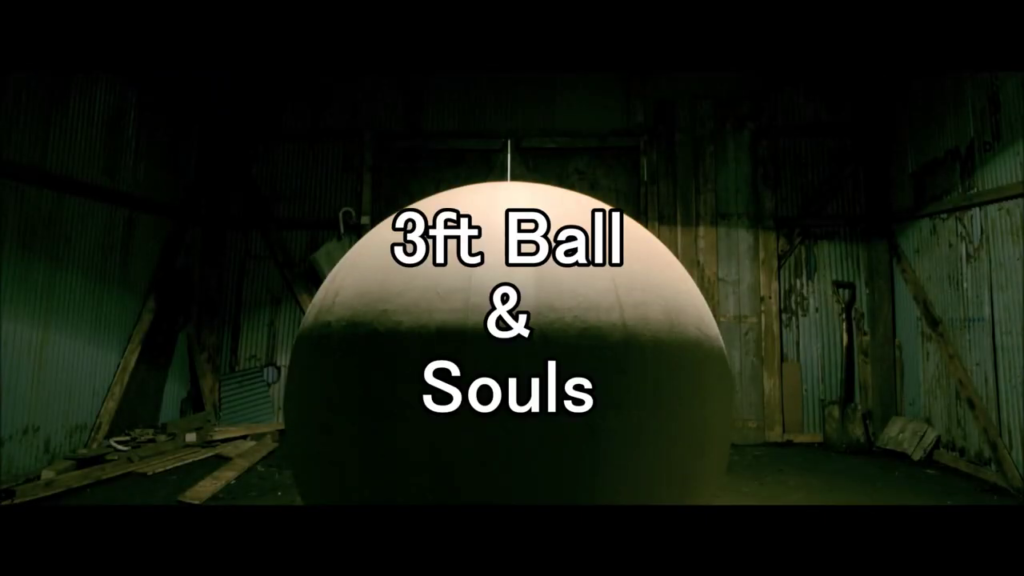
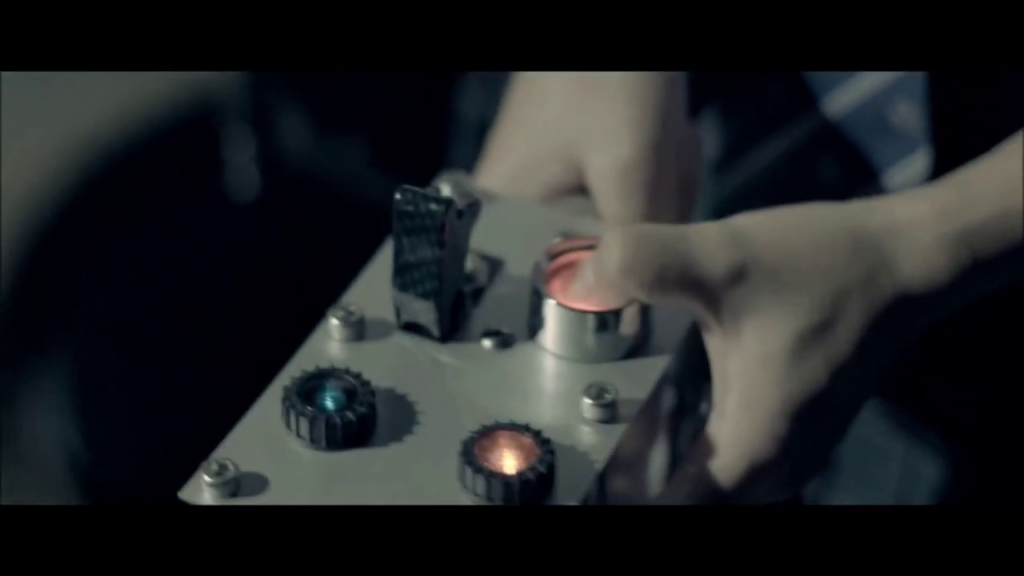
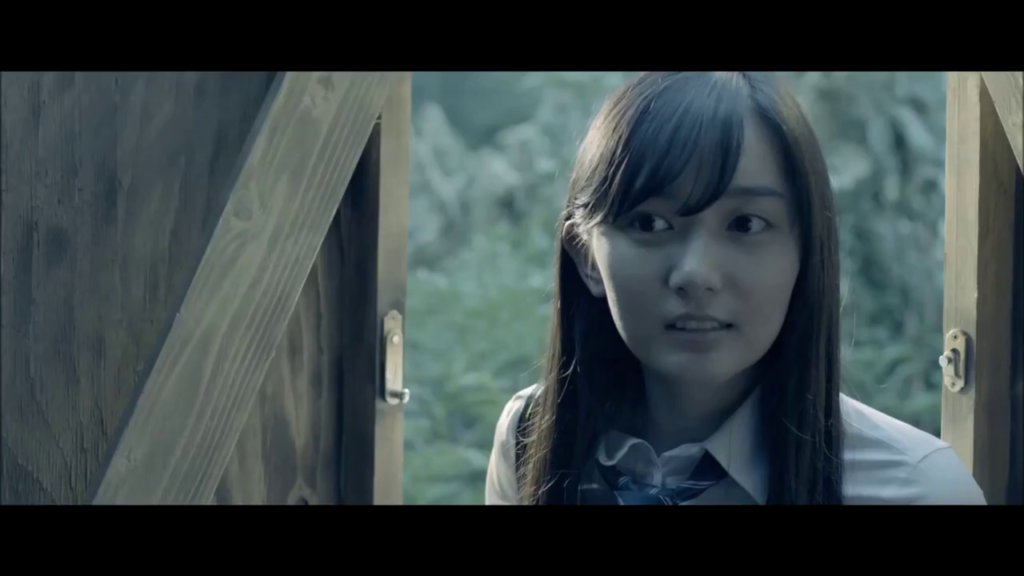
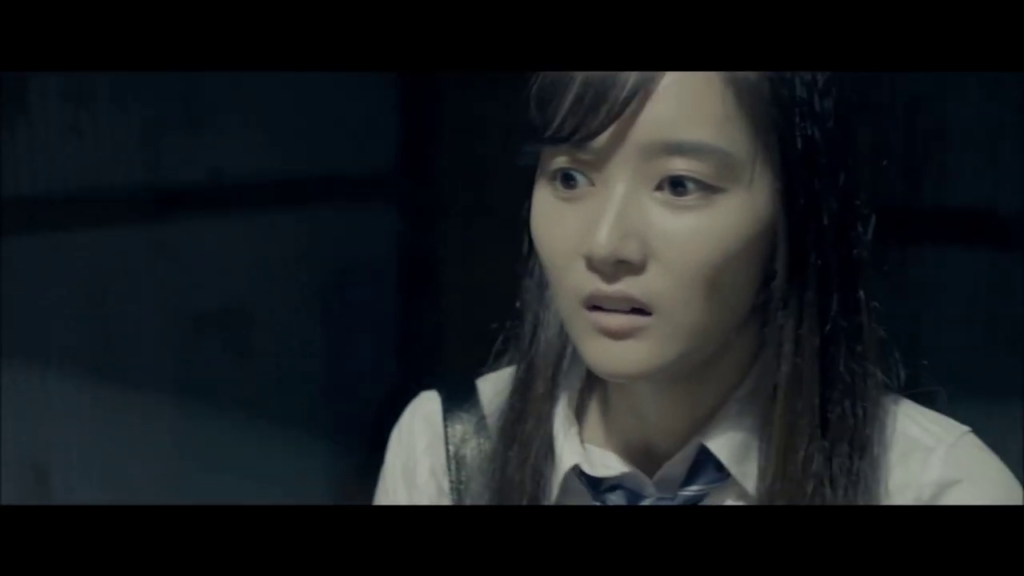
3ft Ball & Souls (2018)
Film review #596
Director: Yoshio Kato
SYNOPSIS: Four people arrange in an online chat room to undertake a group suicide. They meet in an isolated shed where one of them has brought a huge ball of fireworks to explode along with them. When the last person arrives, they realise that she is just a high school student, and the three other adults try to talk her out of it. She refuses and sets off the fireworks, but this sends the other three back in time as they all arrive at the shed. They deduce that the reason they are being sent back is because that Tsukiko, the schoolgirl, is there, and so they try and persuade her to leave before they can end their own lives…
THOUGHTS/ANALYSIS: 3ft Ball & Souls is a 2018 film. The setup of the film is fairly simple: four people, who meet in an online chat room, and agree to commit suicide together. Meeting up in a shed, one of the participants brings with him a huge fireworks ball, which he intends to explode with them all inside the shed. One by one the people arrive, until the final person arrives: a schoolgirl named Tsukiko. Uncomfortable with her joining their plan, the other three try to convince her to leave, but she is adamant she wants to go through with it, taking the detonator and setting it off. This, however, causes time to go back to before everyone gathers. As time loops at this point again and again, the three people believe that the loop is being caused by the schoolgirl’s presence, and try to convince her to leave so they can break the loop. The premise of the film is fairly simple: taking place almost entirely in this small shed, the three participants try to convince the schoolgirl to leave, with each participant recognising they are in a loop at different points of the film. The story takes an in-depth look at it’s topic of suicide that is serious and frank, with a sprinkle of light-humour to round out the characters. The sparse and limited setting supports the tone by proving few distractions, and setting the four characters around this giant ball of fireworks, which leaves them little room to hide.
As the film progresses, we learn a little about each of the characters and the reasons which have led them to this point. The story is well paced and provides enough insight into each of the characters to get you into their state of mind. The irony of these three people so willing to end their own lives trying to convince Tsukiko to not do it herself is not lost on the film, and even though everyone is the same position, they are still there for vastly different reasons, so their words don’t necessarily resonate with one another.
The film’s weaknesses are that while the film does have an in-depth dive into the topic of suicide, it lacks a kind of profound emotional depth that I think it wants to go for. It has it’s moments for sure, but overall it’s missing something to tie everything together. maybe it’s because the characters all have these very distinct personalities and reasons for being there with no overlap, which makes it obvious they are actual scripted characters. There’s also a very cultural aspect of how suicide is perceived and dealt with in japan, so you might miss a certain element of the film if you’re not well-versed in it. I think the weakest aspect of the film is the ending. Without spoiling, it ties everything together a bit too neatly, and it is one of those rare films where it would have been better if the film ended about five minutes earlier in a more ambiguous way that was still positive, but without over indulging the point. The strongest moment of the film comes near the end, when the three participants have run out of reasons and arguments to dissuade Tsukiko from going through with it, being left with the sole reason that they don’t want her to.
Overall, I thought 3ft Ball & Souls was a good film that has a good story that is well told and set up; dealing with a topic that is hard to deal with. The characters play well off of each other, and have a decent amount of depth too. The ending is a bit too simplistic and well-rounded to really gel with the rest of the film, but it doesn’t detract too much from the net positive of the film’s story, pacing and characters.
-
#592 – Press Play (2022)
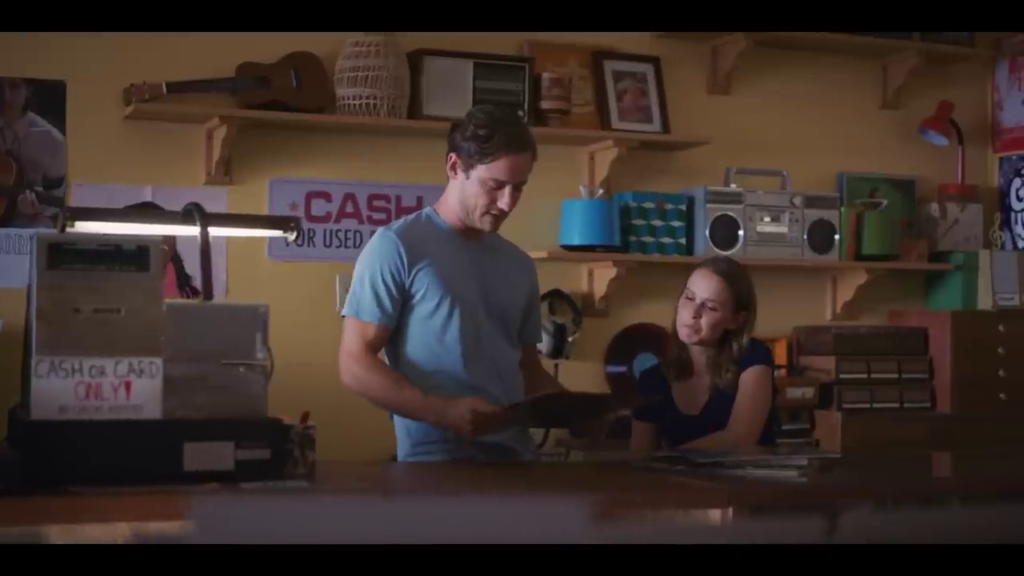
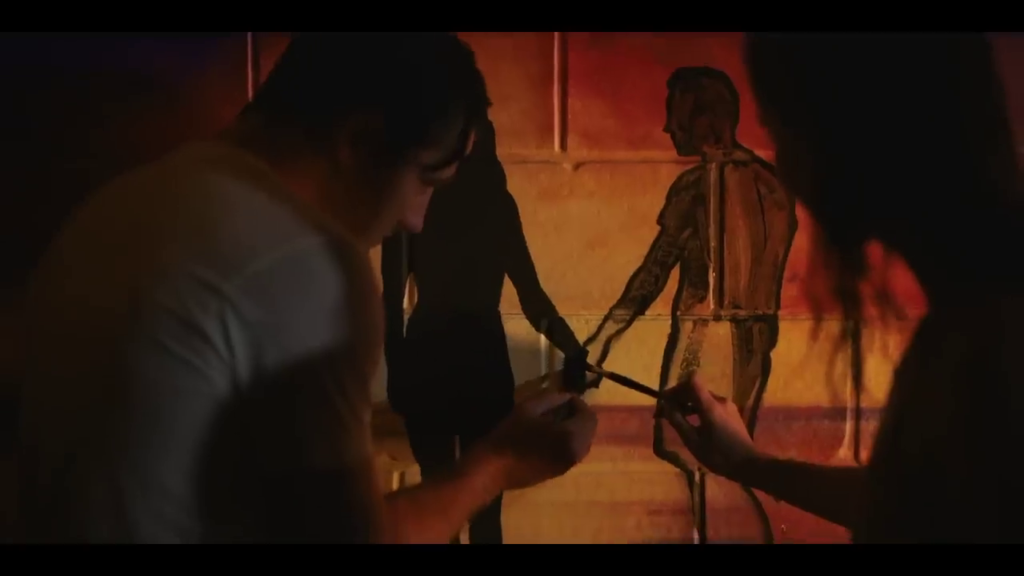

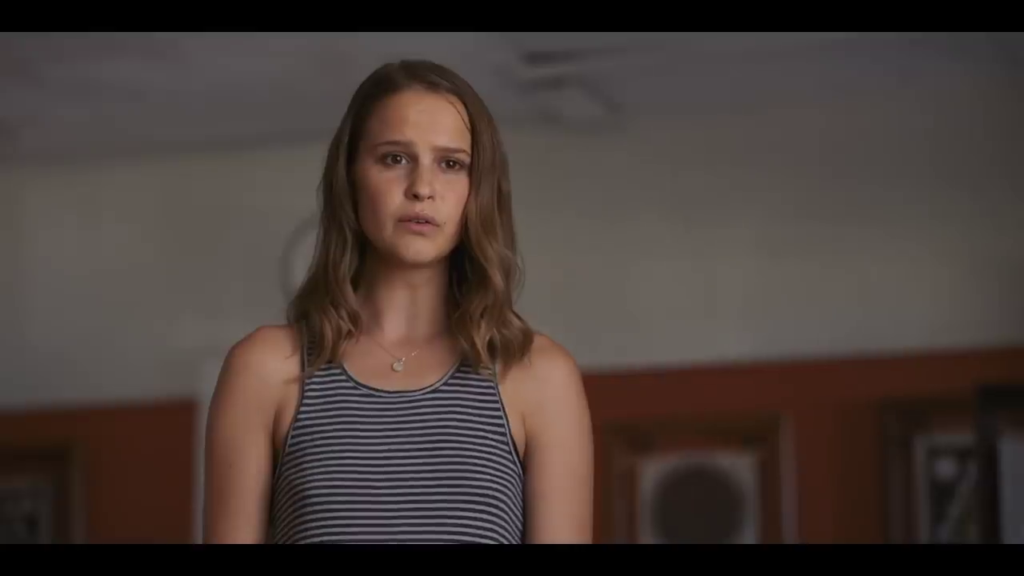
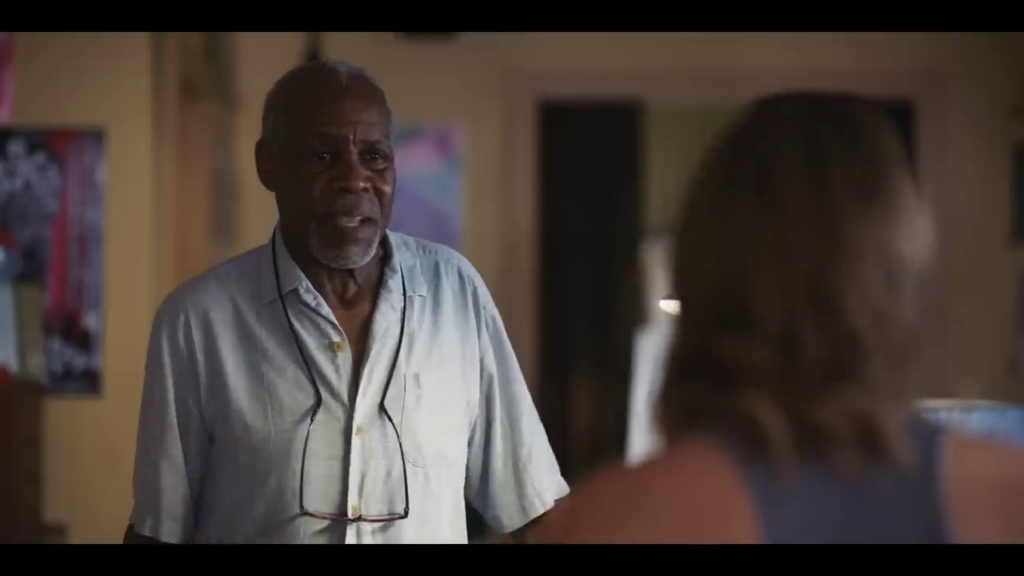

Press Play (2022)
Film review #592
Director: Greg Björkman
SYNOPSIS: After her partner dies in an accident, Laura learns that the mixtape they made together can transport her back in time, giving her a chance to save him. But things quickly become more complicated than they first seem…
THOUGHTS/ANALYSIS: Press Play is a 2022 sci-fi romance film. Laura is set up with her friend’s brother Harrison, from which a romance blossoms. Things come to a tragic end when Harrison dies in an accident, but Laura (some four years later) finds that the mixtape they made together can transport her back to specific points of time relevant to each song on the tape. She uses this chance to go back and try to save his life, but every time she intervenes it creates another problem. We see the from the start how the two meet and their relationship develop, but the main issue of the film quickly emerges from this: One, we are only shown the key events in their relationship one after another, squeezed into the first twenty minutes, which just feels like you’re moving from one moment in time to another without any real connection, and no time or space or a relationship or onscreen chemistry to develop organically. As such, there’s a lack of investment in the relationship and characters, and everything is a little fragmented. I get that it is partly this way because it has to reflect the mixtape of having songs that are part of important parts of their relationship, but without something to bring them together, it just flat out doesn’t work. The concept of the time travelling mixtape is interesting, but very much underutilised and underexplored. There’s a part where Laura decides to read up on the theory of time travel (as you do), but nothing really comes of it, and it doesn’t add anything to the plot. Keeping the mechanics of time travel relatively light might be so as to not alienate the viewers are there for the romance genre, as nothing is as offputting as being overwhelmed by technical jargon. As mentioned though, the romance element is severely underdeveloped as well. The acting isn’t the problem on the whole, and Clara Rugaard as Laura does a good job. Lewis Pullman as Harrison really doesn’t convince with the more emotional moments though, and always feels like he is just acting. Whether it is him, or the direction he is given, he just doesn’t portray quite the right emotion.
For a film that relies quite a lot on music, the soundtrack on the whole is fairly bland and forgettable. They never really discuss (apart from the first song) who the band playing are, or what the song really means; it just happens to be playing by coincidence at certain times. It is perhaps inescapable to compare to a film like Hi Fidelity, which also had the concept of music and relationships at its core, but that film allowed the viewer to build up a picture of the main character based on his music interests, using familiar songs. In Press Play, we have artists and songs you’ve probably never heard, and which sound all a bit too familiar. The lyrics of the songs almost always just verbalise what is happening in the film at that moment, leaving little room for interpretation, and it all just feels a bit on the nose. Also, I can’t help but notice a few elements borrowed from the Life is Strange video game, including the time travel, the indie soundtrack, and even the credits using a very similar font and animation. I’m not the only person that sees this apparently either. I don’t think Press Play is meant to be an emotionally heavy film, but it really does keep everything light in all regards: the onscreen chemistry between the actors is not there, the relationship lacks depth, there’s no real humour to break things up, and the science-fiction element isn’t grappled with to give the film a novel twist.
-
#589 – 7:11pm (2023)
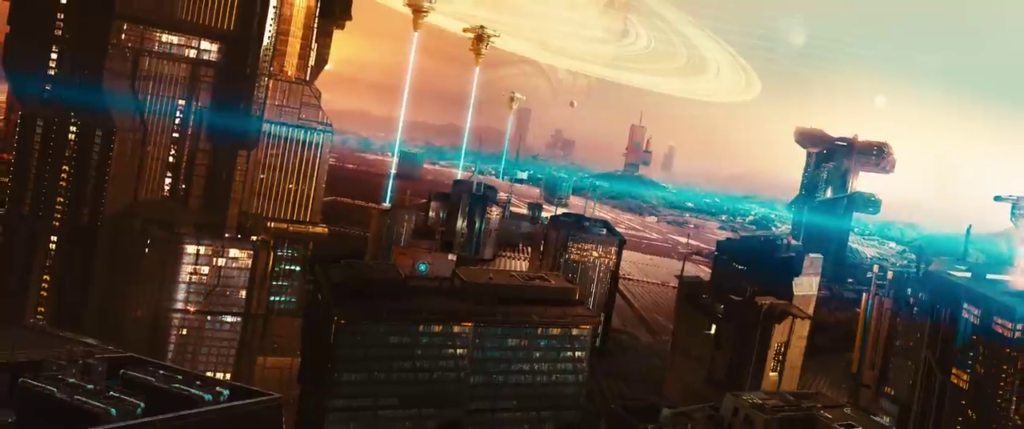
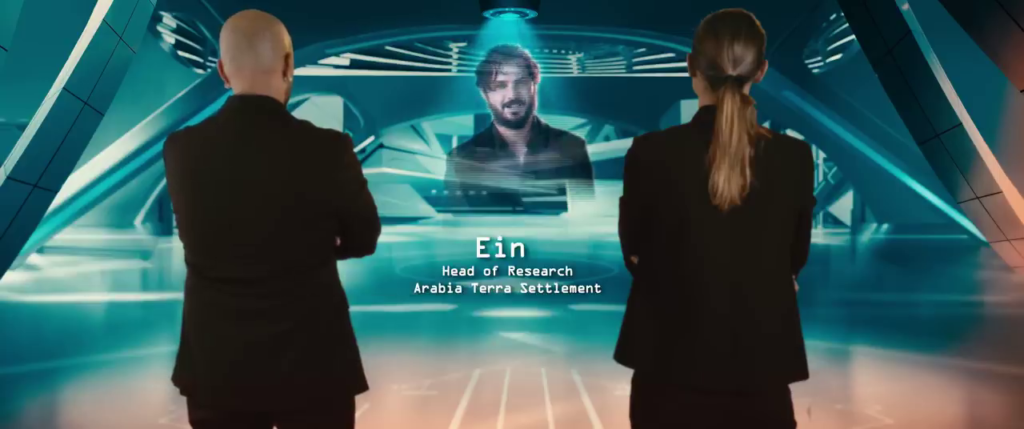
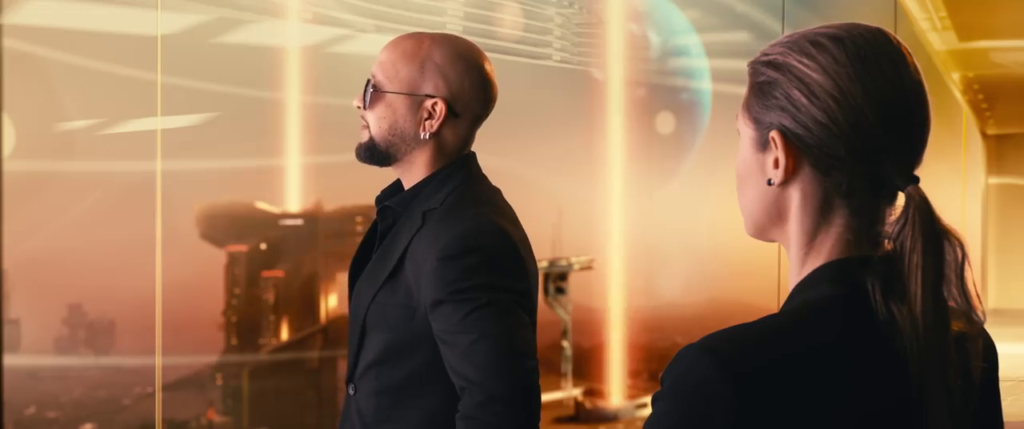
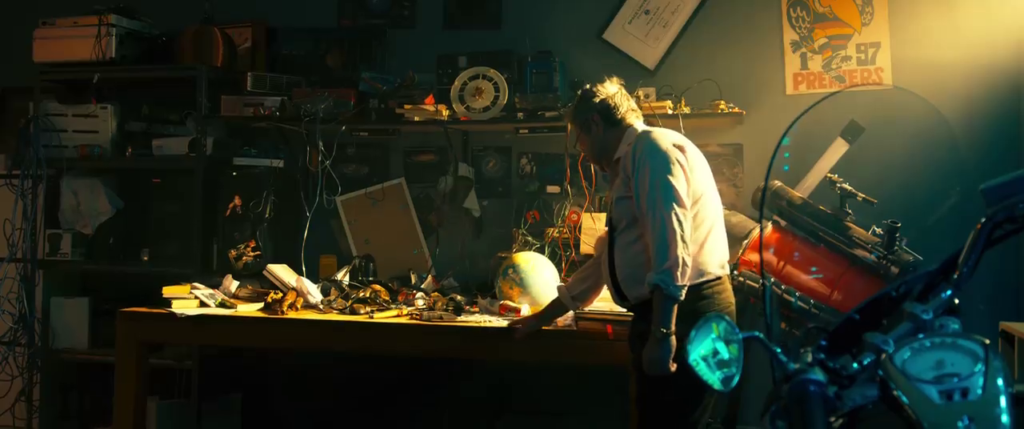
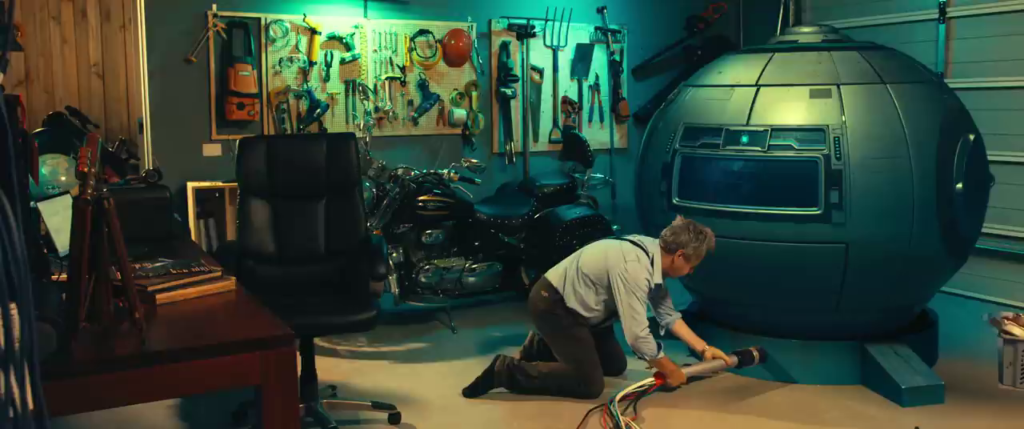


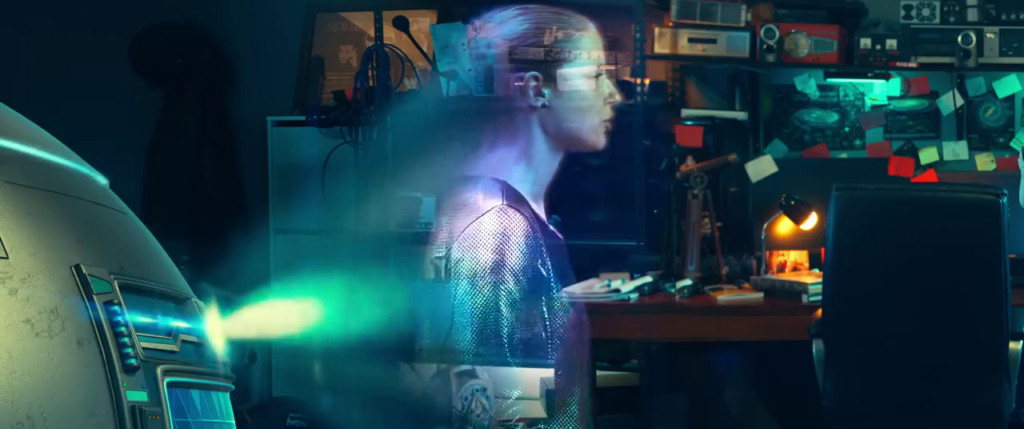
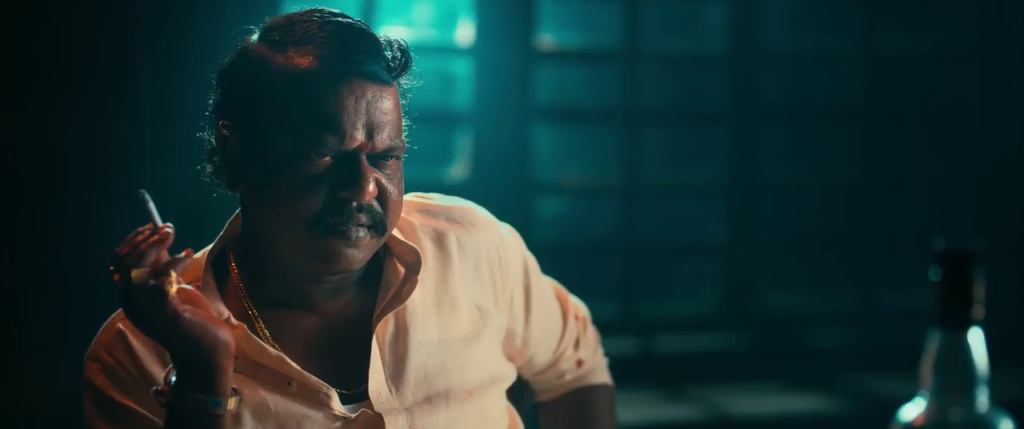

7:11pm (2023)
Film review #589
Director: Chaitu Madala
SYNOPSIS: Ravi lives in the idyllic village of Hamsaladeevi. However, dark forces are working to sell off the village and turn it into a nuclear dump site. Meanwhile, in the future on a distant planet, the last hope of a dying planet is to go back in time to find the important research which can save them. Ravi is thrust right into the midst of all these problems as he seeks to save the village and everyone…
THOUGHTS/ANALYSIS: 7:11pm is a 2023 Telugu sci-fi film. The film centres around the idyllic Indian village of Hamsaladeevi, where Ravi lives. However, evil businessmen are in the process of trying to sell off the village and turn it into a nuclear waste dump. Meanwhile, in the future of a distant planet, the human inhabitants require knowledge from the past to save their planet, and must send someone back in time to Ravi’s village to find it. As you can tell, there’s a lot of different plots swirling around throughout the film: some ranging from the typical romance and corrupt businessmen as you find a lot in Telugu cinema, to some science-fiction elements which are less common. The mash-up of different story elements is very much unbalanced, and things only come together at the last minute, with some plot elements being absent for the majority of the film. The script definitely needed winding back on it’s ambition to just do seemingly everything. The science-fiction element doesn’t offer much, and it feels very similar to Back to the Future, and you’re never going to beat Back to the Future on it’s own turf, and are always going to come off as a cheap imitation. The film could probably have cut out the whole “future aliens” thing and it would have made it flow better immediately.
The film is split into distinct parts, with the outset establishing Ravi’s character and the village, and then Ravi being sent to the future (and Australia, for some reason), and finally, the finale where Ravi goes back and basically fixes everything. These different parts just don’t really connect to each other, with the chunk of the film being set in Australia in the future (of 2024) just having very little to do with anything, and could probably be it’s own film). The climax feels very rushed, as everything is hurriedly pieced together and the plot jumps to each little point to deal with it before quickly moving on to the next one. The different elements lack the depth necessary to leave any kind of impact.
The acting and performances in the film are decent enough and without issue. The special effects aren’t groundbreaking, but serve their purpose. One thing that might stand out is that there’s a fair amount of violence and graphic gore, the scenes in which it is present just don’t seem to match the rest of the film. It has a few twists and turns which are mildly interesting, but 7:11pm lacks coherence and appropriate pacing to handle the sheer volume of ideas and plot elements it wants to string together. Messy, but has some momentum to it, even if it lacks direction.
-
#564 – Chronical: 2067 (2020)
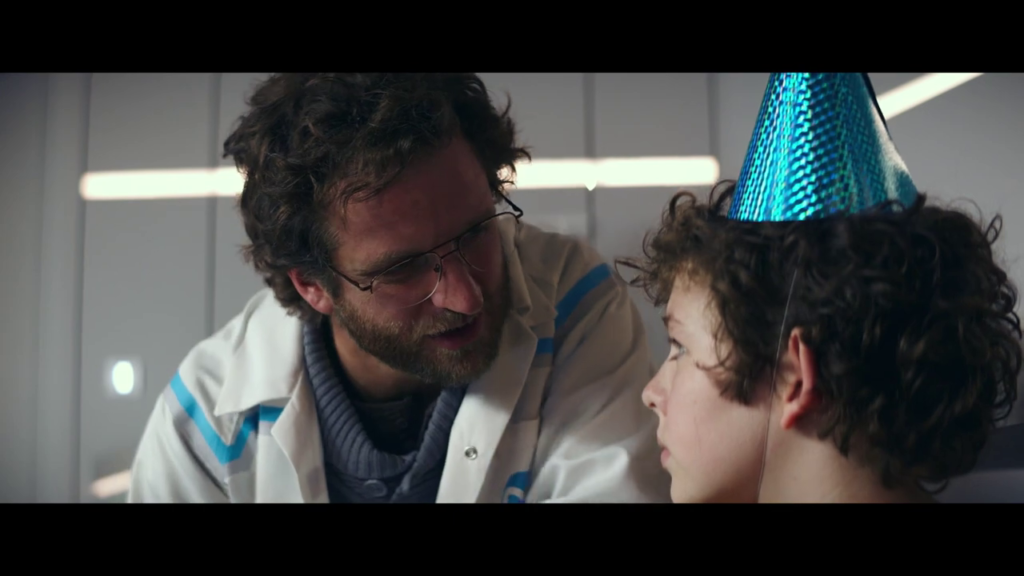
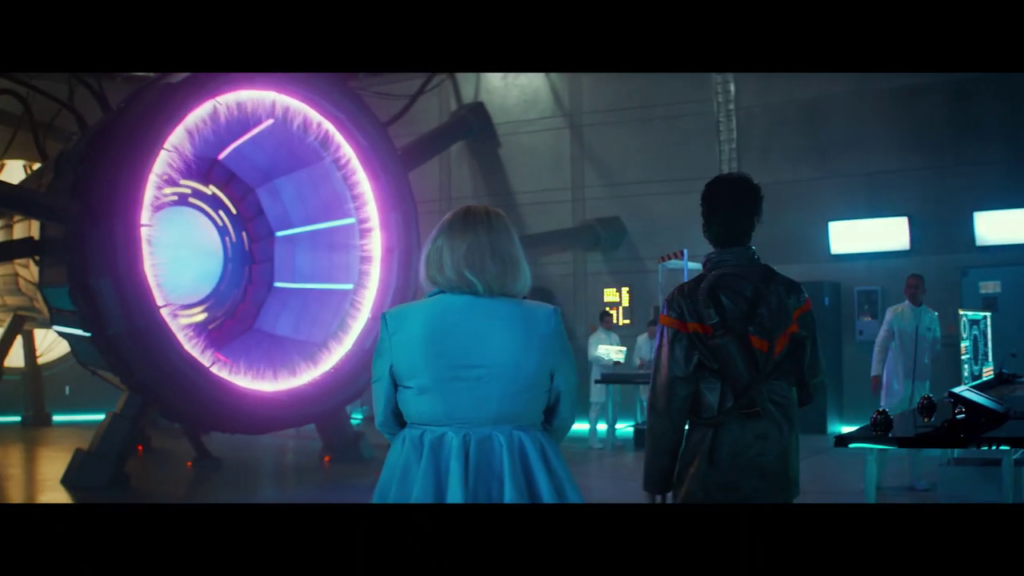
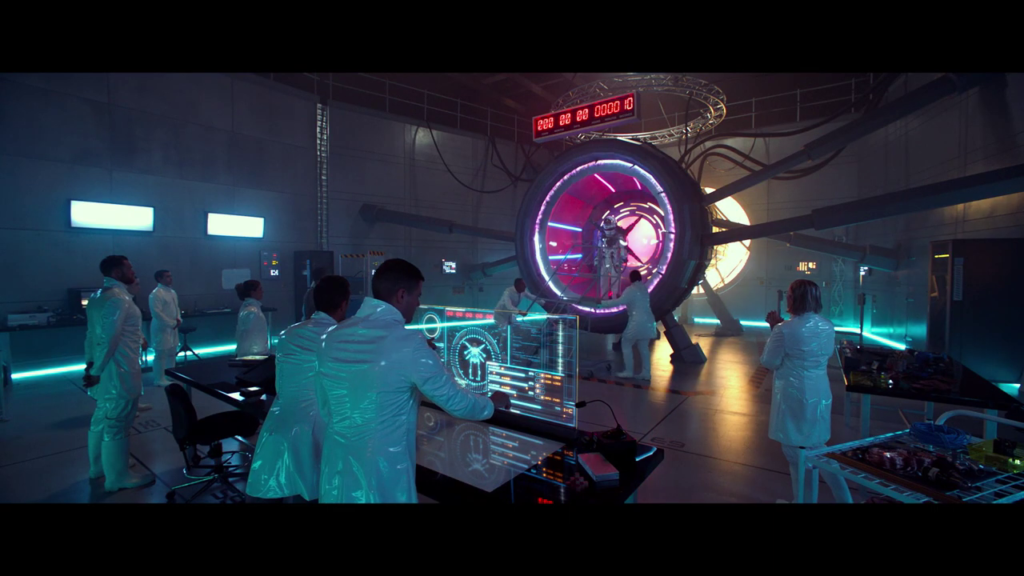
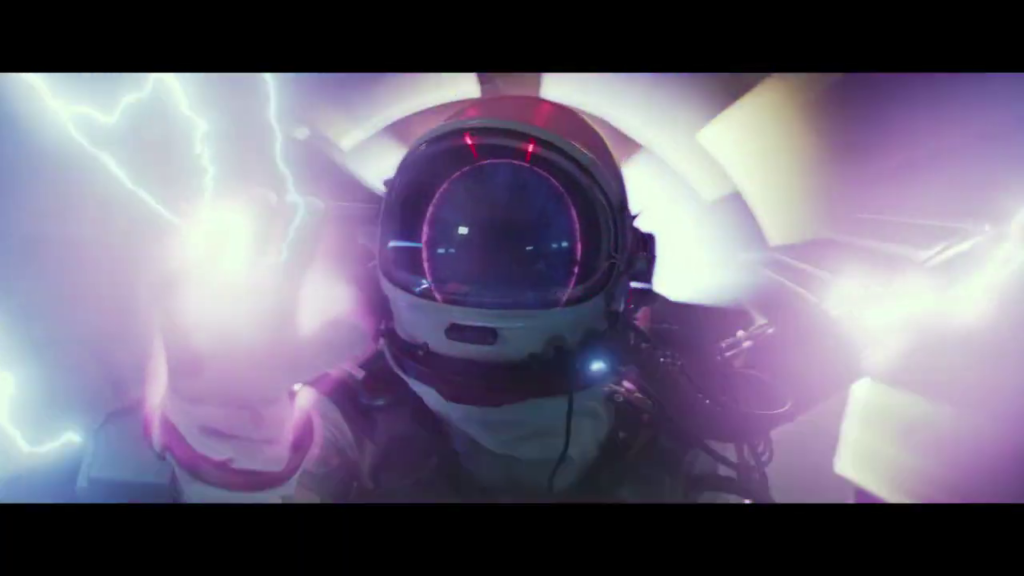
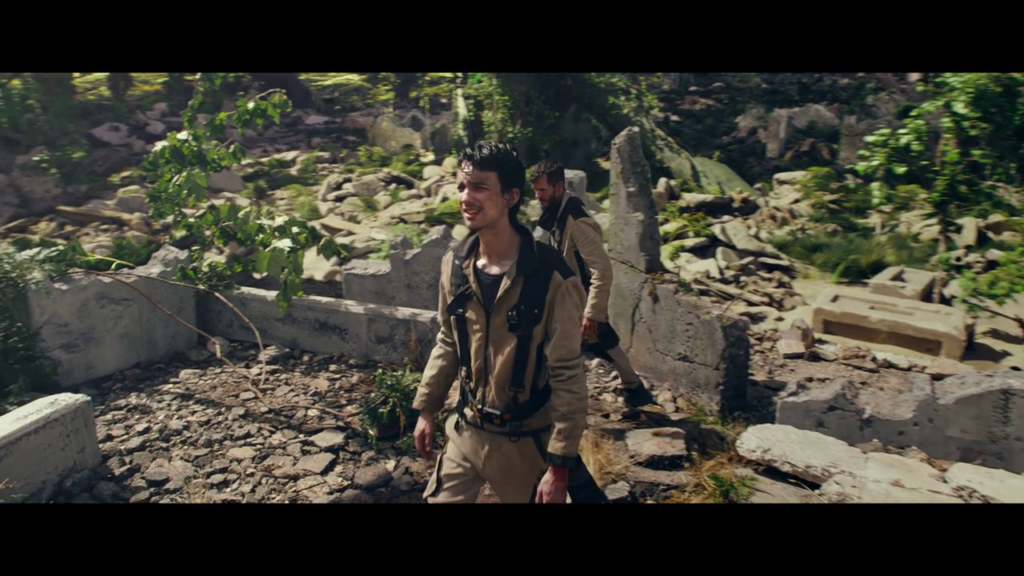
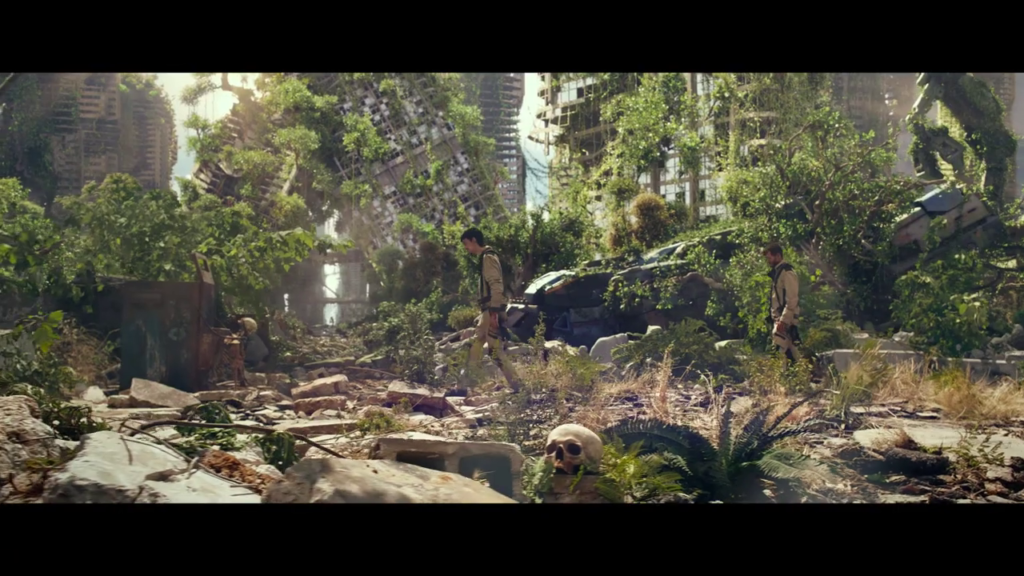
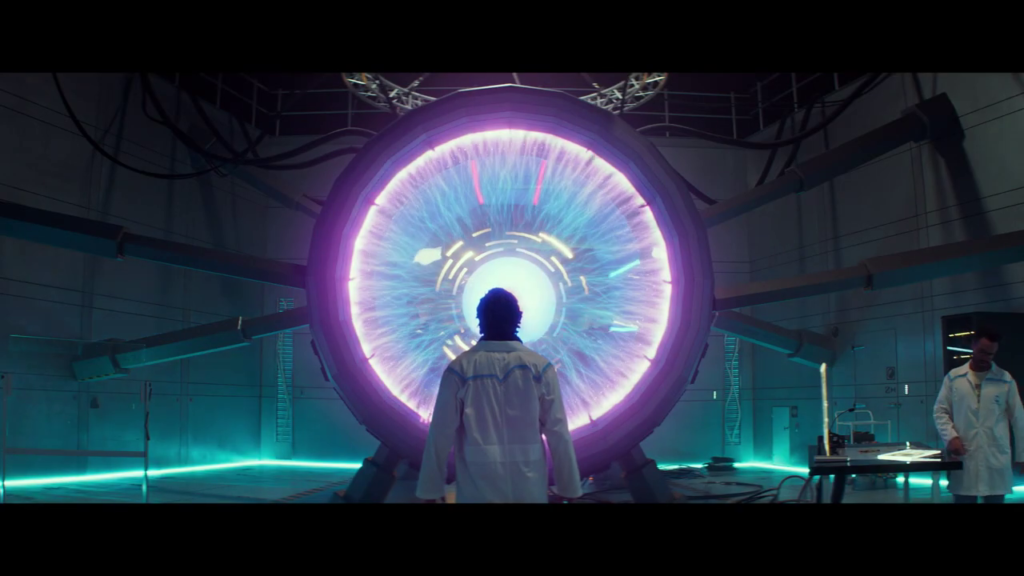

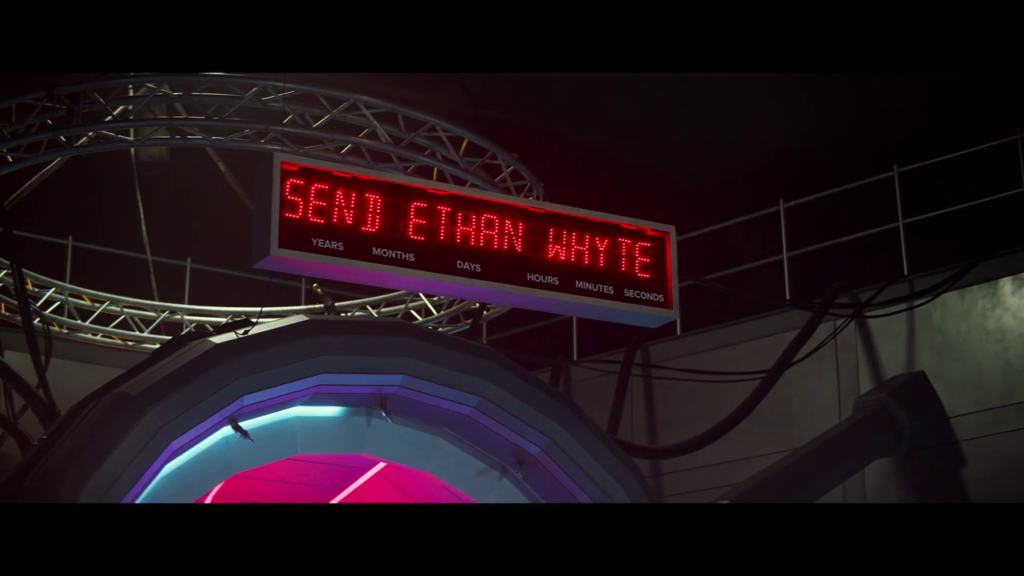
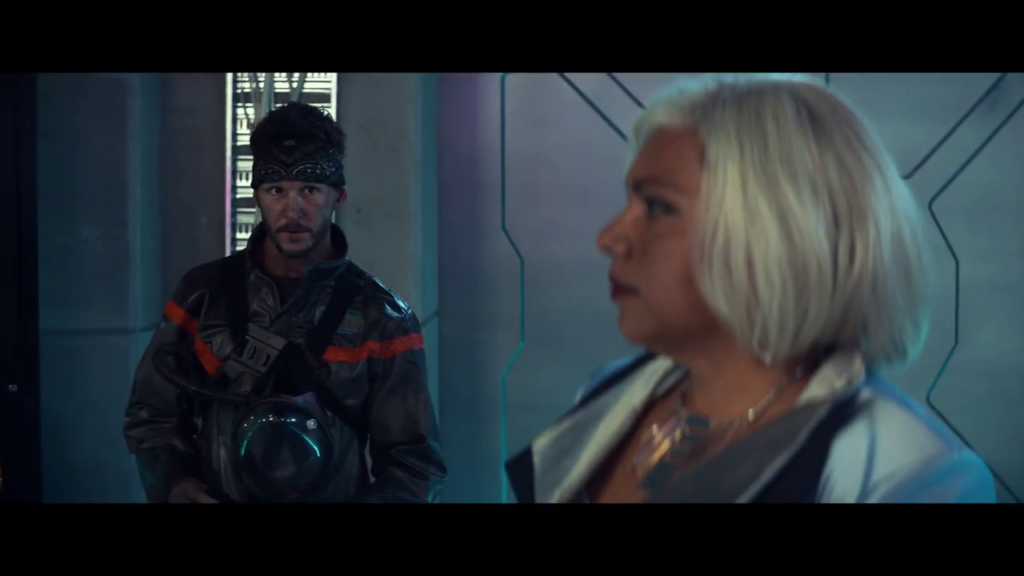
Chronical 2067 (2020)
Film review #564
Director: Seth Larney
SYNOPSIS: In the year 2067, Earth has suffered an almost complete ecological collapse. Humans survive only using synthetic oxygen, which has a side effect of making people sick. The only hope seems to be a top secret project by Chronicorp: a time machine that can travel into the future, where there is hope a cure can be found. However, the time machine has sent only one message through since it was activated: “Send Ethan Whyte”…
THOUGHTS/ANALYSIS: Chronical 2067 is a 2020 Australian sci-fi film. It is set in the year 2067, where Earth has undergone complete ecological collapse, and all plant-life has been wiped out. Humans only survives by breathing synthetic oxygen, which in turn gives them a deadly disease they call “The Sickness.” Ethan Whyte, a lowly technician, is called to Chronicorp headquarters where he is offered a job that apparently will save humanity: to travel to the future in a time machine to find a cure for The Sickness and bring it back, as the time machine has only sent a message from the computer that stated “send Ethan Whyte.” Since this indicates that someone is alive at the other end, it is assumed that the future has a cure for the sickness, since someone would have had to have sent the message, and Ethan agrees to go because his wife also has the sickness. The film attempts to create a lot of suspense and mystery surrounding the fate of the world, the message sent, and the disappearance of Ethan’s Father, but the main problem is it never really comes together, and neither are the situations Ethan is thrown into ever filled with that atmosphere. It’s fairly obvious that there is something more going on than has been revealed, but it never really builds up that mystery and suspense to keep the audience guessing. Typical story elements such as an estranged relationship with a Father, for example, further cement a feeling that you’ve seen it all before.
The characters are also fairly typical, and even though there’s an attempt to build them up, there’s not enough of a hook to make them solid pillars to the film. Coupled with some flat acting here and there, it overall just feels like it’s difficult to immerse yourself in their world and the setting. There’s some nice visual effects that are able to put you more in the main characters shoes, but there’s never enough to balance out the lows. Overall, there’s not much else to say about Chronical 2067: it presents a fair amount of mystery and a basic amount of intrigue, but never the suspense or drama that it needs to in order to hook a viewer into the mystery. There’s a constant feeling you’ve seen a lot of it before, and done better. It’s not terrible, and there’s some good ideas, but there’s perhaps too many of them, and they never properly cohere into a strong narrative, or the sheer multitude of them just make the characters walking tropes that splinter off every which way, so they too never become individual personalities that can drive forward the story. A classic case of good ideas, bad execution.
-
#552 – Marching Out of Time (1993)
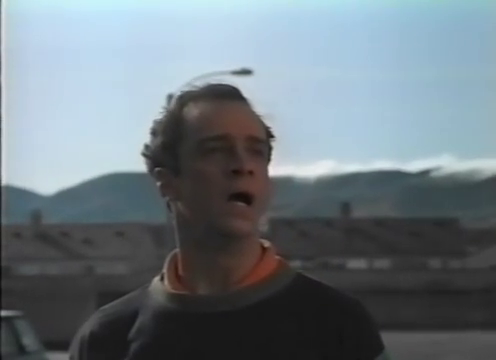
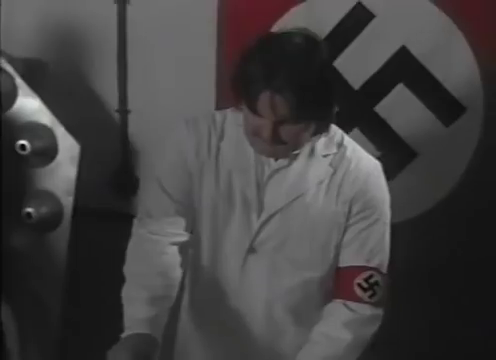
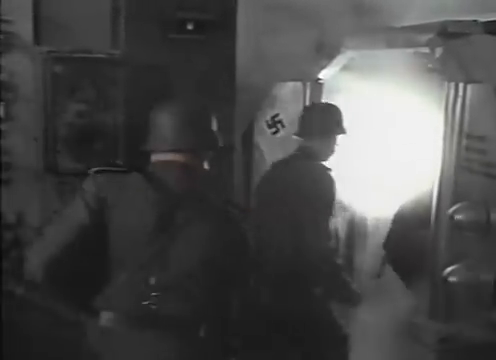
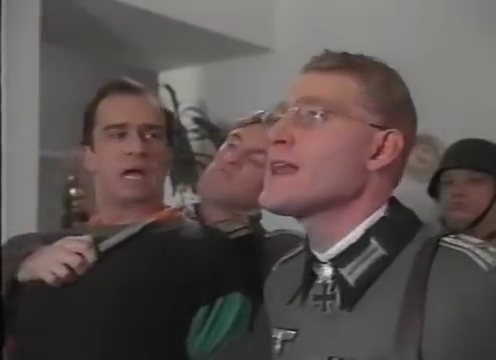

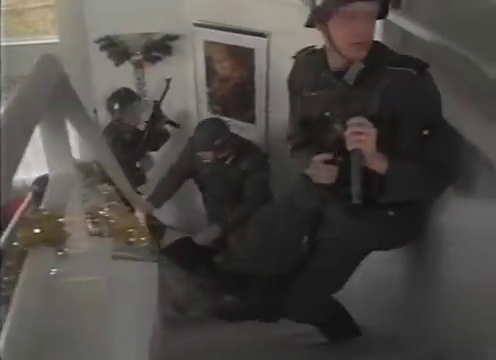
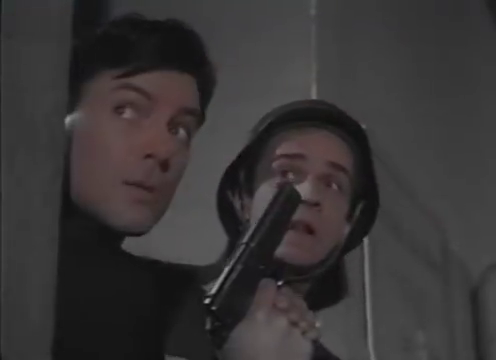
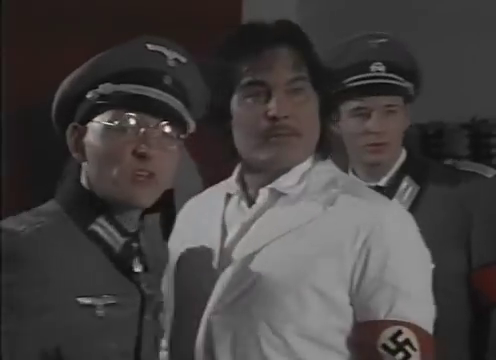
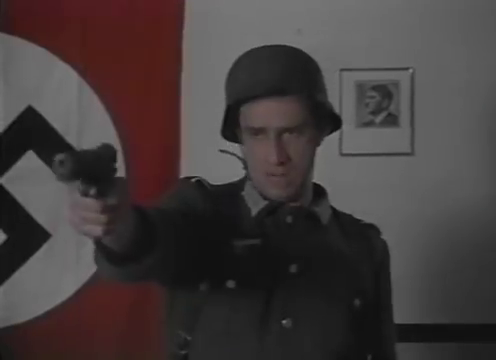
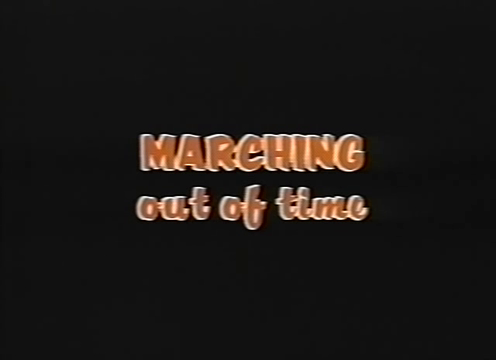
Marching Out of Time (1993)
Film review #552
Director: Anton Vassil
SYNOPSIS: Fred Johnson is constantly hearing noises from his neighbour’s house, and is determined to find out the cause of them, much to his family’s annoyance. It turns out his neighbour is conducting experiments in teleportation. However, his experiments seem to interfere with a similar Nazi experiment in 1942 to transport troops to England, and instead they emerge in the teleportation device in suburban U.S. Fred and his neighbour must stop the Nazis from returning to 1942 with all the information they have gathered about all the mistakes that cost them the war, and rewriting history to make themselves the victors…
THOUGHTS/ANALYSIS: Marching Out of Time (also known by the debatably better title, Back to the Fuehrer) is a 1993 sci-fi comedy film. The film is set in the suburbs of the U.S., where Fred Johnson is becoming obsessed with noises coming from his neighbours house, much to his family’s annoyance. He breaks into his neighbour’s house and discovers Dr. Memo, his neighbour, is working on a teleportation device made from a pair of fridges. Unfortunately, the experiment goes wrong, and interferes with a similar experiment from 1942, which involved attempting to transport Nazi troops from France to England. The result being that the Nazis, led by von Konst, arrive not in England, but in Dr. Memo’s basement in the 1993 U.S. learning about this, they change their mission, and gather historical information about all the mistakes the Nazis made that cost them the war, and aim to return to 1942 with that information to ensure that they are not made again, ultimately winning the war. The stakes are raised and Frank, Dr. Memo, and a low-level cop must fight to prevent the Nazis changing the course of history. The film is a comedy film so everything is all a bit slapstick and silly. It definitely feels like Back to the Future, but instead of Biff Tannen trying to change history, it’s Nazis. The story is fairly linear and doesn’t really build up to anything, so it’s just an excuse for a bunch of silly scenarios and slapstick violence. There is one scene in the middle of the film in which the serious repercussions of the films events are highlighted, but that’s the only one. There’s other typical scenes like the Nazis “disguising” themselves in tie dye shirts and exploring the local area to “blend in,” but that doesn’t really go anywhere, or provide any funny situations. There’s not much laugh-out-loud comedic moments, I think it’s humour is more situated in the whole ridiculous scenario, and Fred being the last person on earth who should be stopping a Nazi invasion. Also, I guess this is technically a Christmas movie, as Fred is supposed to be going away with his family for the holidays, but stays behind to deal with his neighbour. However, this is the only real reference to Christmas in the film.
In terms of the characters, Fred Johnson is a typical suburban Dad, and a typical comedic lead: one which you’ll feel like you’ve seen in a movie before (but definitely haven’t, because the actor didn’t appear in any films before or after this). His family are tormented by his nosiness and whining, and you do wonder why they put up with him. Dr. Memo is the typical “mad scientist,” and von Konst is portrayed like every nearly every Nazi officer you’ve seen on film before. the acting isn’t bad at all, and the stereotypical characters have a familiarity to them that allows viewers to focus more on the comedic aspect of the film, rather than the characters.
The film, perhaps surprisingly, is made fairly well: it has the look and feel of a low budget film, but actually probably wasn’t: the locations are fairly detailed and full of props and things, and the camerawork is pretty good. There’s even a few stunts and explosions that, while not overly impressive, would still have taken effort to set up. It’s clear the film wants to situate itself in that low-budget parody genre of films, but it has a bit of budget and expertise to make it properly, without making it seem like the film is trying too hard to be a bad film. Marching Out of Time is mostly forgettable, but is made fairly well, and maintains its energy throughout, while exploring the premise of the film well enough. It definitely feels like a film of its time, riffing on Back to The Future a little, with it’s typical characters that are familiar enough so as to not need to dedicate a large amount of time to introducing and developing them. Predictable, but silly and fun enough to not be a waste of time.
-
#549 – Three Supermen Against the Godfather (1979)
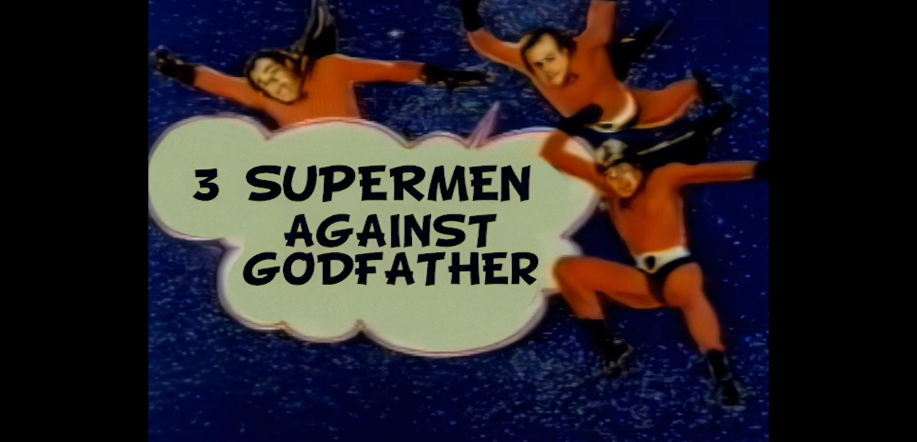
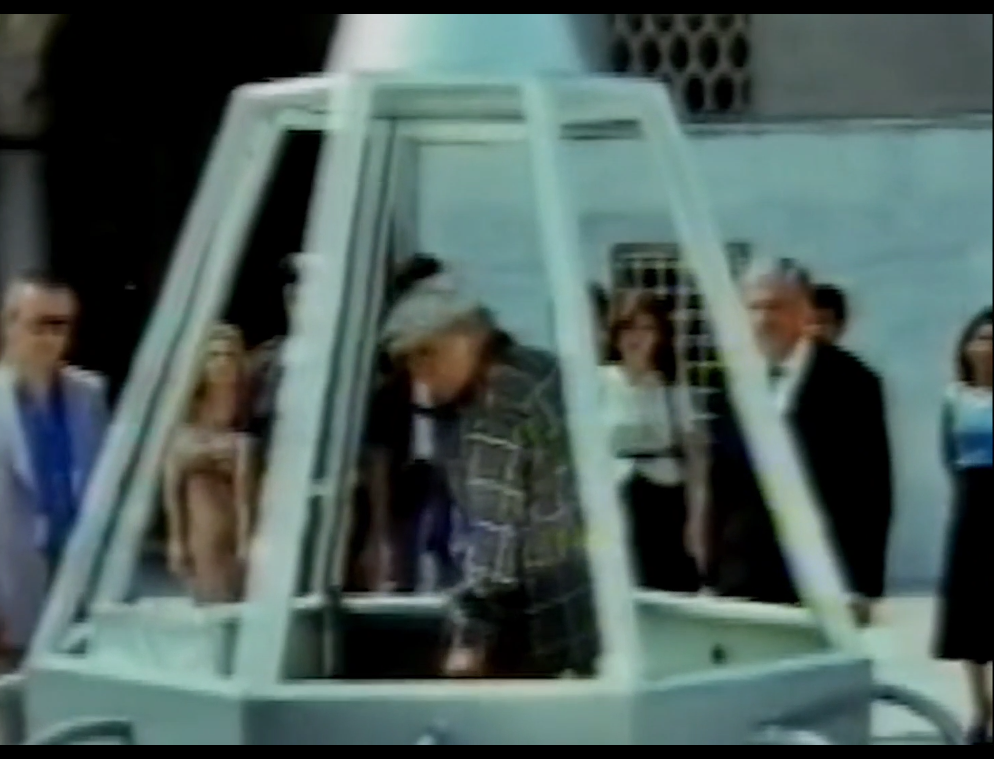

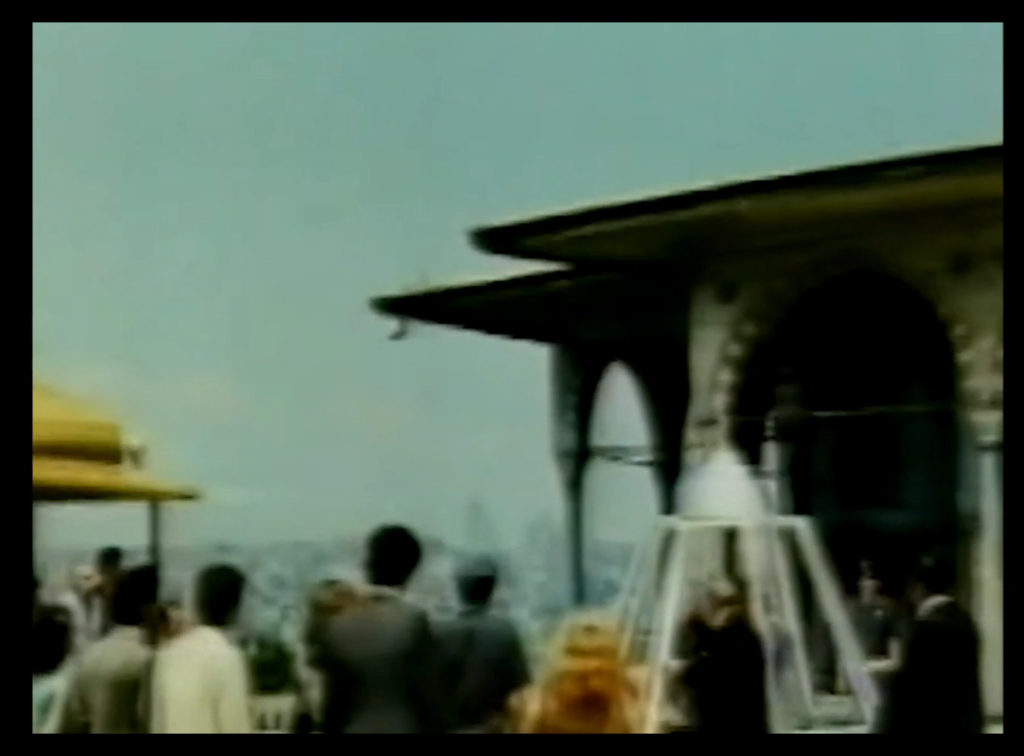
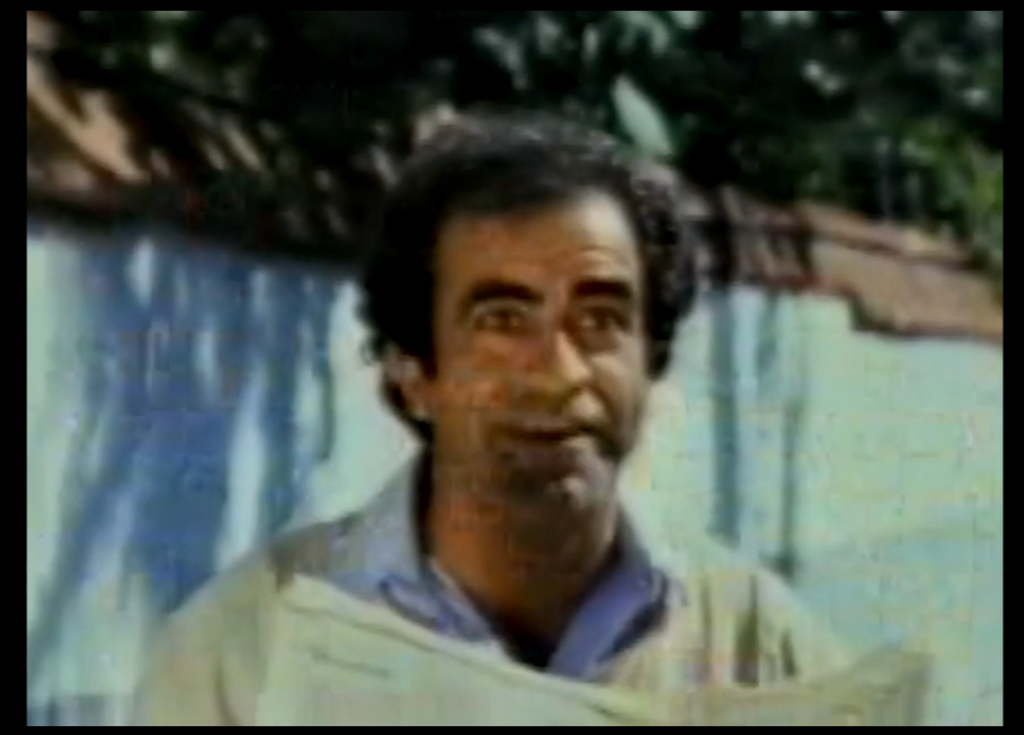
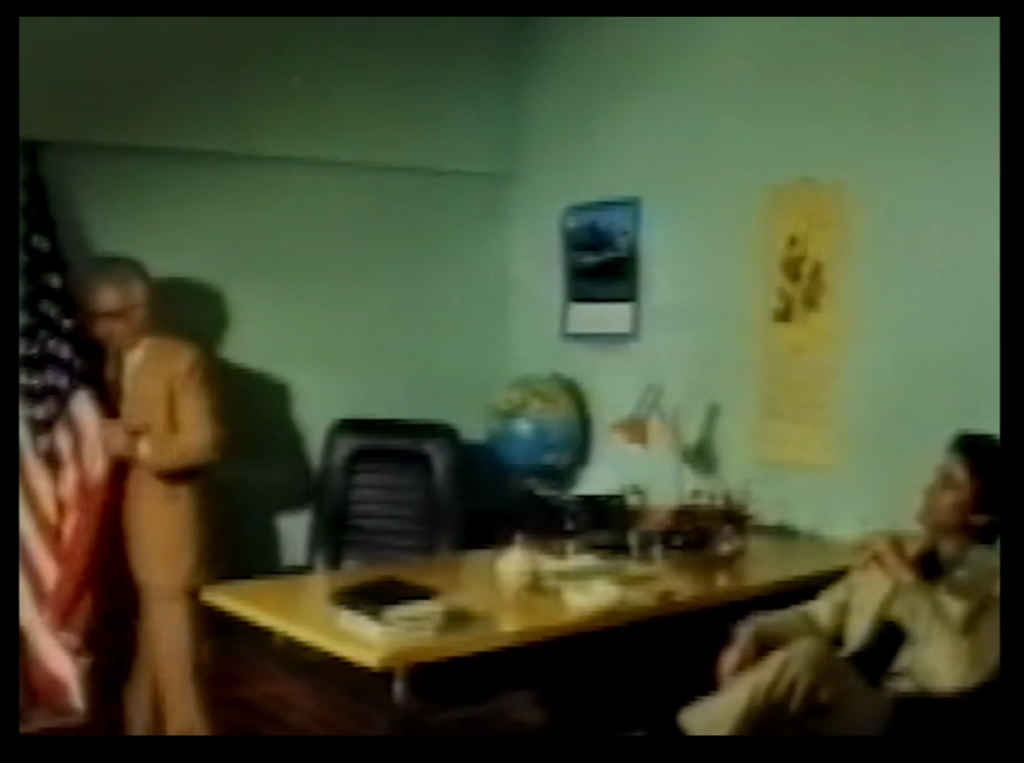
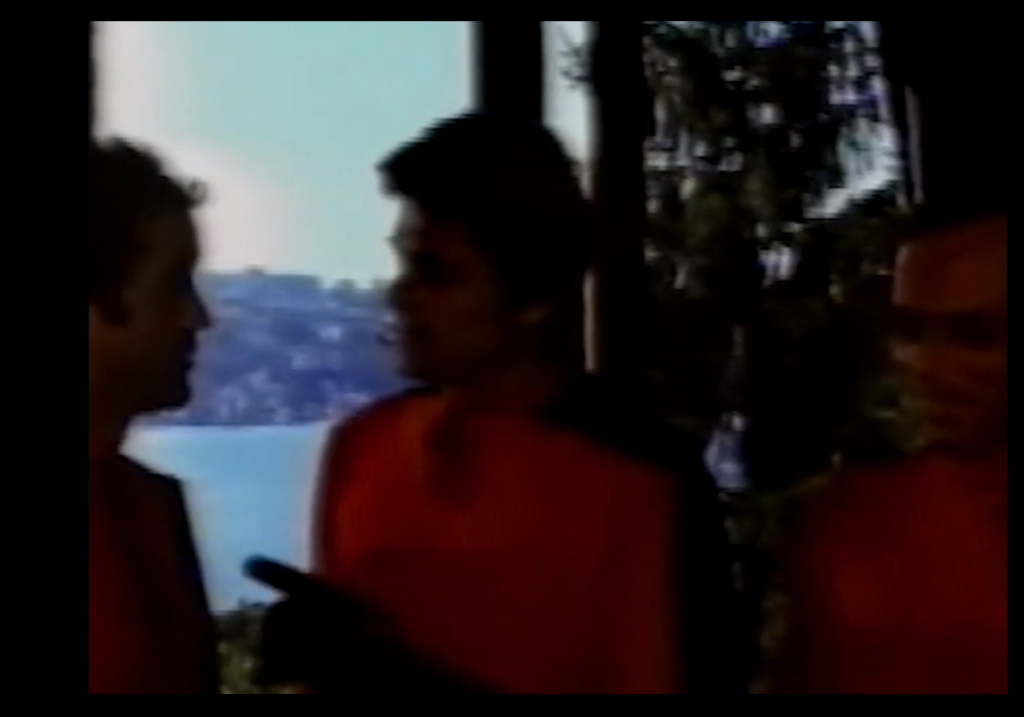
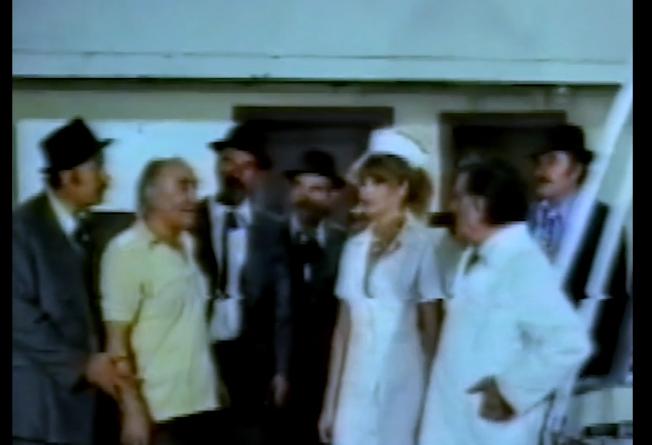
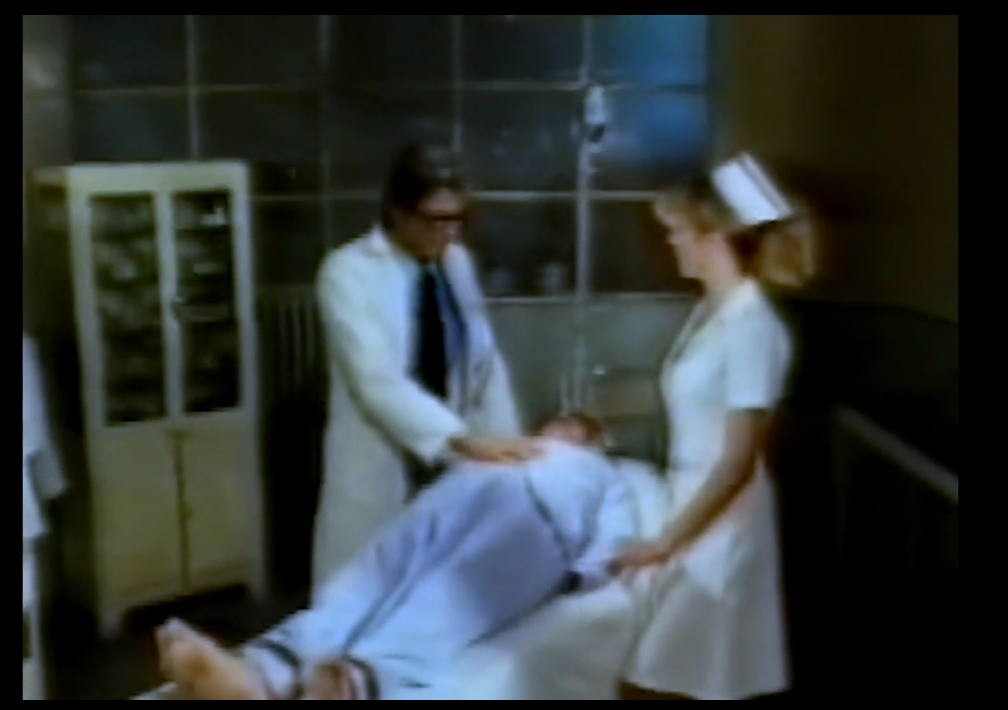
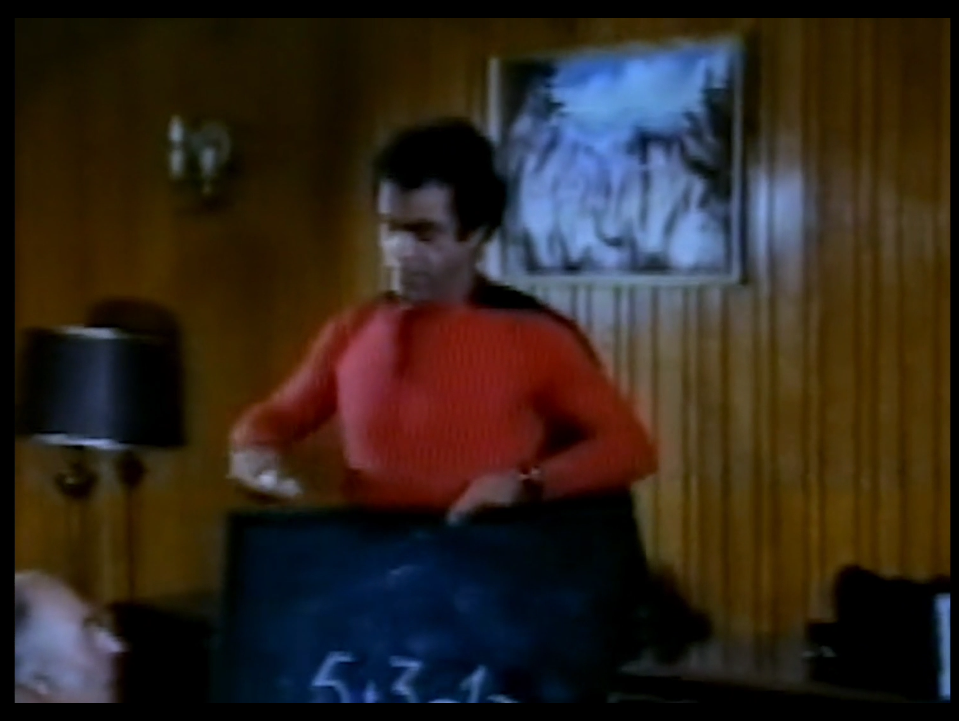
Three Supermen Against the Godfather (1979)
Film review #549
Director: Italo Martinenghi
SYNOPSIS: A scientist has invented a time machine, and uses it to travel back in time in Turkey to the fall of Constantinople, to learn the location of the treasure hidden before the city was sacked. The two thieves known as the supermen learn of this, and decide to try and take the time machine for themselves. But they’re not the only ones interested in it, as an Italian mafia boss, foreign powers, and once again, FBI agent Brad is sent to work with the supermen (against his will) to secure the time machine and protect the inventor…
THOUGHTS/ANALYSIS: Three Superman Against the Godfather (released as Süpermenler in Turkey) is a 1979 film and another instalment of the Three Supermen series of films. This time, the supermen are after a time machine invented by a scientist (not the same one who invented a similar time machine in Three Supermen in the West, of which there is no mention), with the aim of going back to the fall of Constantinople in the fifteenth century, to find out where the royal treasure was buried before it was lost. The two international thieves known as the supermen learn about the machine and decide they want to steal it for themselves, but an Italian mafia boss and some foreign powers are also after the device and the professor; and as always, FBI agent Brad (or whatever his name is this time) is sent by the U.S. to secure the professor and the machine himself, and is ordered to cooperate with the supermen, which he is reluctant to do because of the constant shenanigans he gets caught up in whenever he meets them. The film feels like a return to the classic formula of the films; after the Hong Kong co-production Supermen Against the Orient, which was more of a typical martial arts film that substituted the classic acrobatics with said martial arts, and also messed up what little continuity the series had. While it is a return, it should also be noted that this “original formula” was itself all over the place: some films were science-fiction based others were parodies of spy films, westerns, and so on. With this one, it’s obviously riffing on The Godfather and mafia films, and the sci-fi element of time travel doesn’t really factor into the film at all: they only travel once in the beginning to demonstrate that it works.
As always with the Three Supermen films, the main actors have a bit of a shake up, with only Sal Borgese as the mute superman keeping his role as he has through most of these films. To make things even more confusing this time, Aldo Canti, who played one of the supermen in the first film, returns to the series, but he is instead playing the role of the FBI agent this time, with the other role going to prolific Turkish actor Cüneyt Arkın. The choice of actors doesn’t really make too much of a difference, as their characters aren’t too developed in any particular way, but it’s just interesting to follow this revolving door of casting. The reason for Arkin’s casting is because the film’s production has moved from Italy to Turkey, and I guess his casting would have some appeal to the local market.
The reason for the move from Italy to Turkey is fairly interesting: Italian media became more focused on television, and moved away from cinema in the mid-late 70′s. As such, there was an exodus of sorts of Italian filmmakers to Turkey, where their type of cinema was still more popular. Nevertheless, it would seem this film was hardly released to any cinemas at all, and is probably the most difficult to get a hold of in the franchise. While the film does have the usual slapstick moments, scantily-clad women, and some stunts, we don’t get the typical acrobatics we usually do, probably because the newer cast aren’t actually acrobats, and the older cast probably can’t pull the feats off anymore (remember that this franchise would have been twelve years old in 1979). Overall, Three Supermen Against The Godfather is, for better, or worse, a return to the typical Three Supermen formula that is full of a heap of different ideas and directions that don’t really cohere, but it’s still just a bit of silly fun.
-
#544 – Three Supermen of the West (1973)
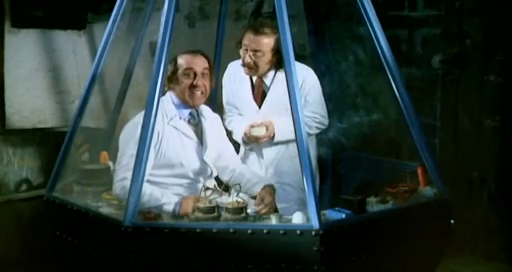
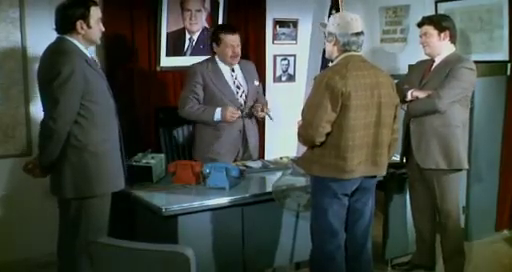
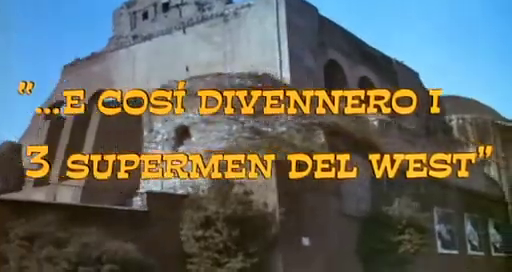
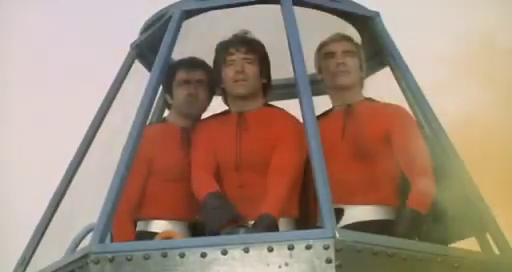
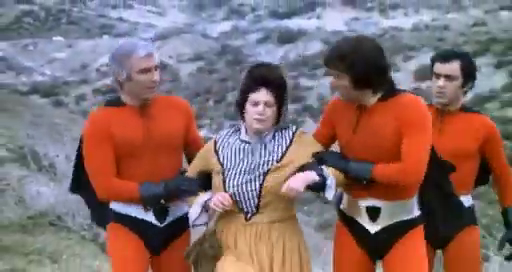
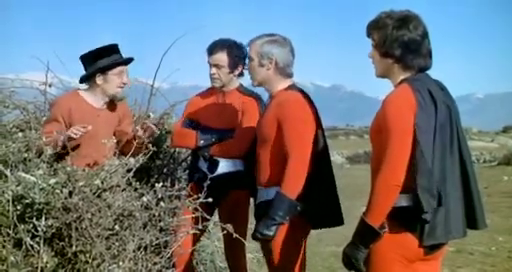
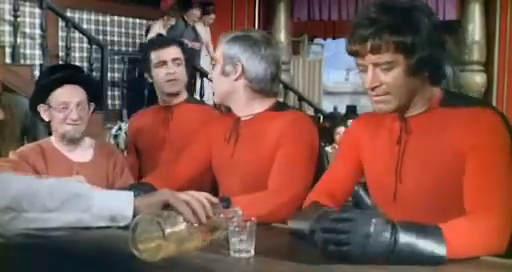
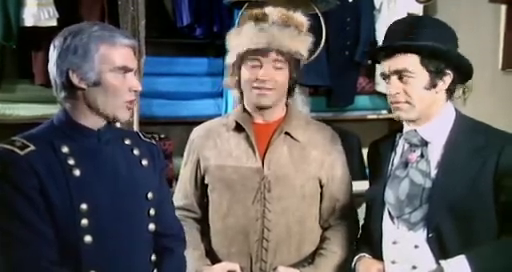
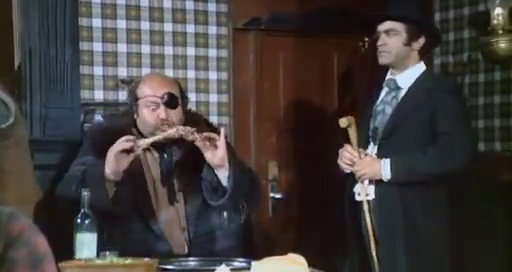
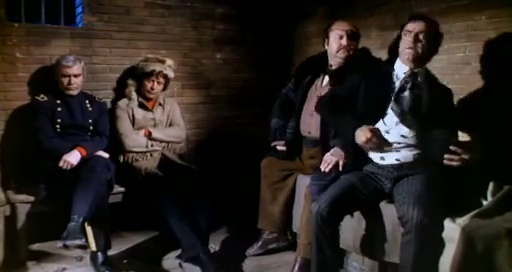
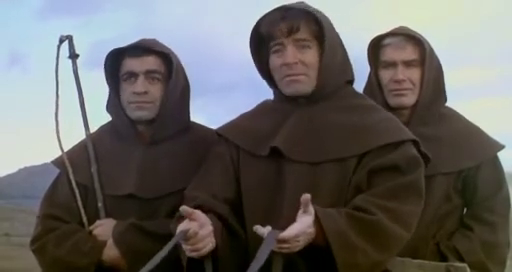
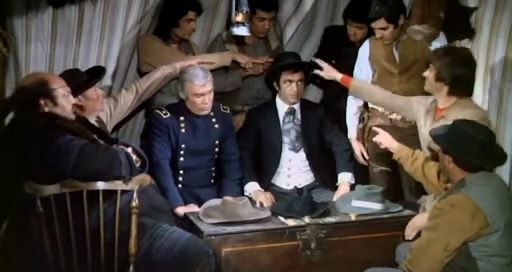
Three Supermen of the West (1973)
Film review #544
Director: Italo Martinenghi
SYNOPSIS: The three supermen are once again apprehended for a mission by the government, this time to destroy a time machine built by two scientists. The supermen manage to find the scientists and the time machine, but are accidentally transported back in time to the Old West, where the they meet a beautiful woman, and decide it might be alright to stop for a little while…
THOUGHTS/ANALYSIS: Three Supermen of the West is a 1973 sci-fi film and the fourth film in the Three Supermen series. The film starts in the way in which you should be accustomed if you’re following the series, as the government (of some country, or the CIA…it changes), again calls for agent George Martin to team up with the international thieves known as “the supermen,” in order to destroy a time machine invented by a pair of mad scientists. As always, the supermen are up to their old tricks, this time in Rome, where they’re scamming an American tourist into buying the colosseum in Rome off of them. Eventually, George chases them down after plenty of running and fighting, and the three head to stop the scientist, who has already finished the invention and travelled through time. They track him down, but accidentally end up activating the time machine themselves, transporting them to the Old West. There, they meet a young woman, and decide to stay a while. While the story in the second and third films was more grounded in the sense it was a spoof of typical spy films, this one just decides to loosen its grip on reality and go full sci-fi. It is reminiscent of the first film, which had cloning and a machine that could turn people into jewels as part of it’s story. Anyway, there’s not much direction or purpose in the story: the supermen travel back in time and just decide to stop a while because of a woman, leading to some typical Western genre hijinks. It’s a good opportunity for the film series to spoof a different genre this time (Westerns instead of spy films), but there’s nothing deeper to the story than that. Fortunately, the action and fighting is still full of energy, so it’s entertaining enough, even if it doesn’t go anywhere.
The three supermen are the same characters you will know from the previous films, but as always, some of the actors have changed between films. This time, it’s just the one, with the role of Brad being recast. The rest of the supporting characters are fairly forgettable, but they play typical, but necessary parts well, as they are fairly expressive and over-the-top caricatures. In fact, a lot of the film has a much more slapstick feel than its predecessors, with the fights becoming increasingly silly: at one point they even throw a cream pie at someone’s face, just to hammer the point home. It definitely captures that “Old West” feel despite being filmed in Milan, so credit should be given there. Also, to the silly sequence of the two scientists travelling through time, which shows them falling through various periods of history, made possible with stock footage of other movies, although some of the footage is in black and white, which is a silly little goof. Overall, Three Supermen of the West is more of the same mindless entertainment you got from the previous films, maybe even moreso, as the lack of direction in the story, and the more sci-fi elements and slapstick humour make the film more detached from reality than its predecessors. Still, it’s a little bit of fun so if you got through the previous ones, you can get through this one too.
-
#510 – Trancers 6 (2002)
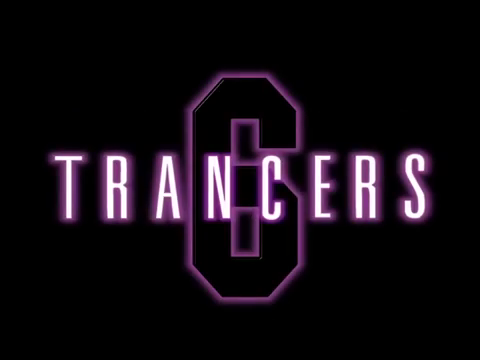
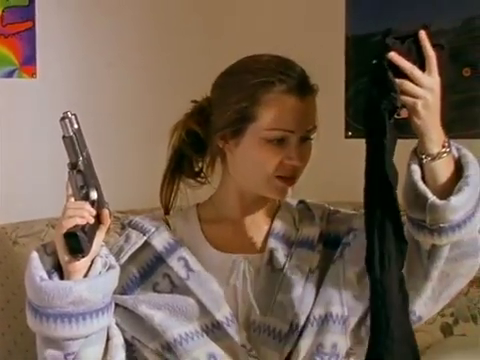
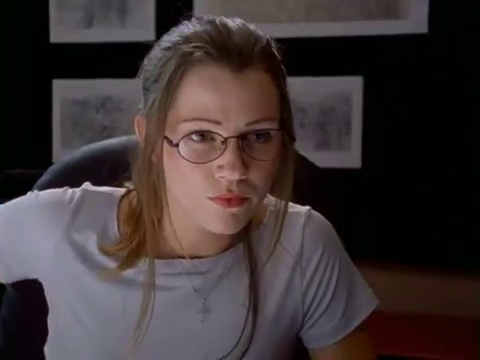
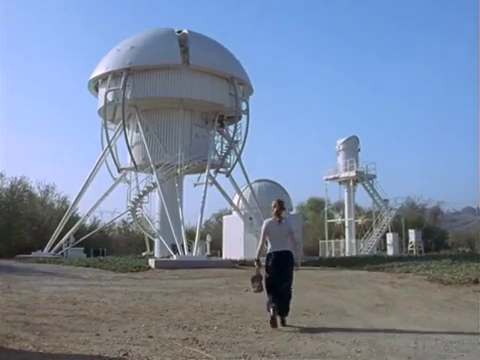
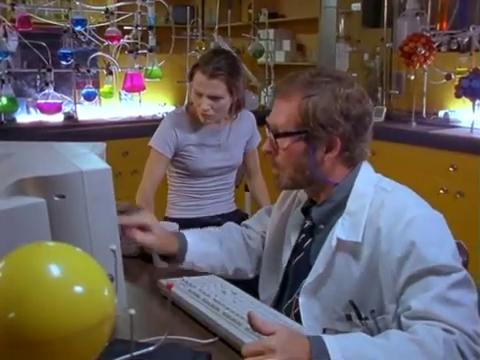
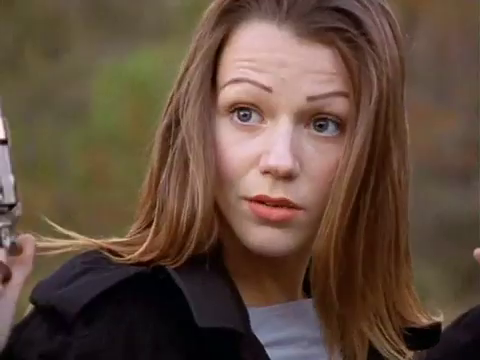
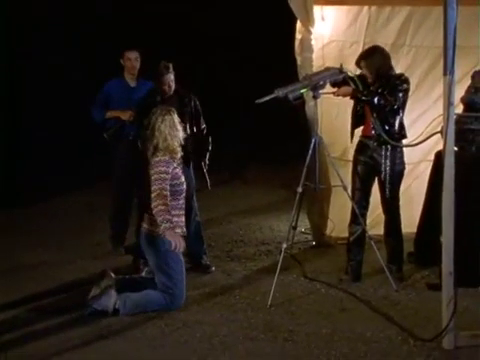
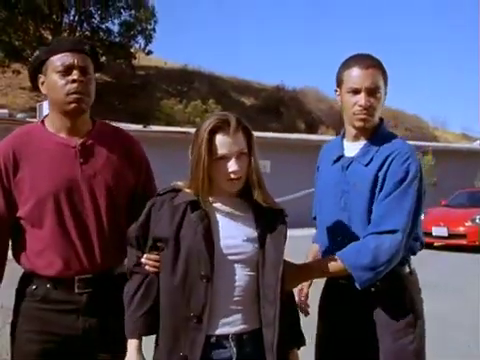
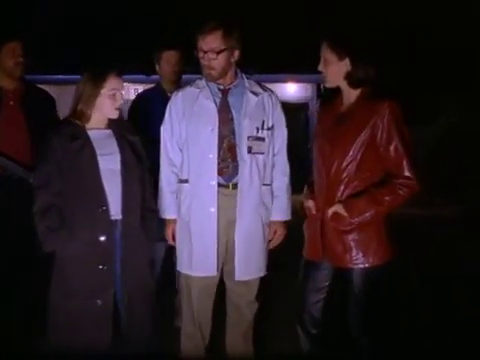
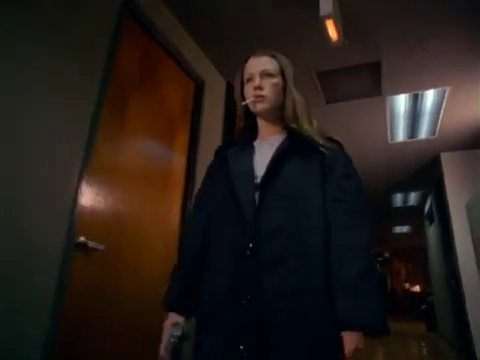
Trancers 6 (2002)
Film review #509
Director: Jay Woefel
SYNOPSIS: Trancer hunter Jack Deth is once again sent “down the line” back in time to hunt down a new Trancer threat. He ends up in the body of his daughter, whose lifestyle certainly doesn’t fit with his own. In this new body and life, Deth must hunt down the Trancer threat and put a stop to it before his daughter is killed and he is wiped from existence.
THOUGHTS/ANALYSIS: Trancers 6 is a 2002 sci-fi film and the sixth film in the Trancers film series. In a return to the original premise of the films, Trancer hunter Jack Deth is sent back in time to inhabit the body of his daughter in the 21st century, to find and counter a new Trancer threat before they can kill his daughter and erase his existence. After the weird fantasy adventure of Trancers 4 and 5, this one returns to a more simple sci-fi action film. The absence of Tim Thomerson as Jack Deth in this film removes the only redeeming aspect of this film franchise: his caricature of cheesy action heroes was so ridiculous that it would be entertaining. His appearances in this film are limited to archive footage from previous films, and a stunt double playing his barely visible body strapped to a table in the future. Instead, we get Jack inhabiting his daughter Joanne…who is also his great-great grandmother, managing to create some sort of paradox or another, but this is glossed over, as the film doesn’t really focus on details in general: it’s straightforward, to the point, but that lack of detail really slows the film down after the first act, where it becomes apparent the film has very little substance. The film manages to feel both like a low-budget film from both the 80′s and the early 2000′s at the same time, which I suppose makes sense, but being released eighteen years after the first film, there’s very little progress to show in terms of story, production, lore, or design.
Joanne (Jo) is basically everything Jack Deth isn’t: a tee-total, vegan, meek nerd with a dull career. The majority of the humour in this film basically derives from Jack Deth being his foul-mouthed, smoking, misogynistic self, retorting everything that is said to him with a cheesy or inappropriate one-liner. The film is very much a one-trick pony in this regard, but honestly, it retains it’s entertainment value throughout the film, and it is genuinely funny in parts by virtue of how purely cheesy it is. This has always been the Trancers films best aspect, and it is good to see that even without Thomserson, they are still able to pull it off. Zette Sullivan as Jo Deth manages to pull off Jack’s style of speech and deliveries pretty well, and you can really believe that Jack is inhabiting her body. The line delivery is a bit flat sometimes, but there’s definitely worse things about the film. The rest of the cast; from the supporting characters to the villains, really do not leave an impression. The new Trancer threat isn’t really explained after Jack supposedly wiped them all out in the previous films: apparently it has something to do with meteors and radiation or something, but as mentioned, the intricacies of the plot aren’t really the focus of the film.
Being a production by Full Moon Entertainment, you should expect a low-budget production, but this is bad even by their standards. The sets are limited to empty building, corridors, and some rural outdoors scene in the middle of nowhere. The special effects are really bad, but thankfully only used once when a guy is thrown out of a high-rise building, resulting in a hilariously bad effect. The gore and other effects are pretty standard, and are nothing too noteworthy; a lot of the production is very much what you would expect from these films, but there’s also a distinct lack of trying to do anything unique, and an added amateur-ness in the camera work, acting and locations. Trancers 6 is a bad film, there’s no escaping it: it is dull, poorly produced, and very threadbare on plot that it feels somewhat pointless. Despite all of that though, it still manages to recapture the absurd, over-the-top character of Jack Deth even without Thomserson’s portrayal, and the twist of putting him into a young woman’s body is just different enough to provide new entertainment value in the whole set-up. The film definitely relies on this sole gag to carry the whole film, but if you’ve made it through the previous Trancers films and got some laughs and entertainment from them, you can probably get a little more out of this last one.
